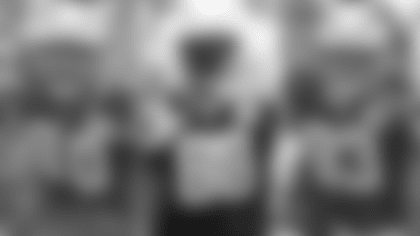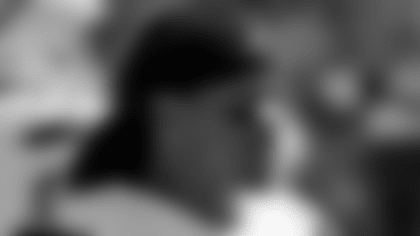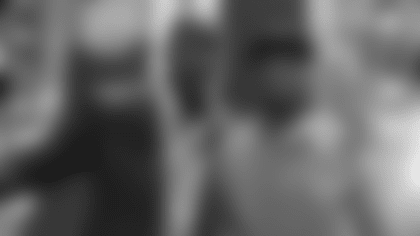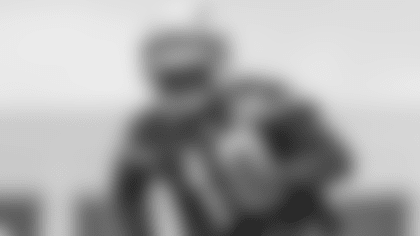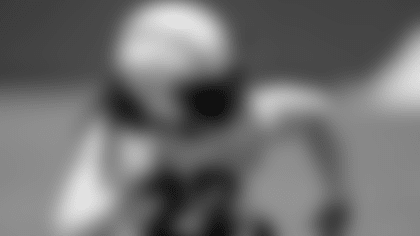Over the coming weeks, we'll be checking in with the Chargers' position coaches and coordinators to get the inside scoop. We continue with TE Coach Rip Scherer.
Previous Evaluations
Chargers.com: This is obviously your first year with the Chargers, and you were dealt a setback early with Hunter Henry's injury. Overall, how would you assess your first few months with the team?
Scherer: Everything about the spring for me and the tight ends was positive with the obvious setback of Hunter Henry's injury. That was really disappointing and devastating because it impacts our team, but also because he's such a great young guy. You hate to see anything like that happen to anybody, let alone a guy that is as good a person as he is. That will impact us, but I was proud of the way the rest of the unit stepped up and took the challenge. They grabbed the bull by the horns so to speak, and just plowed forward. I think we have a good group. Not a lot of experience, but great guys who I think eventually can make some contributions.
Chargers.com: Whenever I talk to a tight end, he usually ends up saying how it's the most cerebral position outside of quarterback. They have to know all the protections, run game, routes as a pass catcher and so on. How do you go about divvying up those responsibilities, as well as the need to hammer home the importance of learning this system to a room that, as you mentioned, is pretty young?
Scherer: I think having come from a quarterback background, and a coaching quarterback background, most of my career, it's really a positive and helps me in that regard. I basically coach the tight end position through the eyes of the quarterback. Now, that's also taking into consideration the fundamentals of the run game and blocking that is involved there. So, I think you have to parcel out the different areas of responsibility. The physicality and the toughness involved in the run game with the athleticism required as a pass protector against edge rushers, which are the elite rushers typically on everybody else's defense. And then, the pass catcher (in the) open field athleticism that is required to be an integral receiver in our passing game. So from a mental standpoint it is very similar to the quarterback. From a physical standpoint, each one of them has to give it his own attention. They have to know you can't shortchange one aspect of it to focus on another. They have to be equally proficient in all three areas.
Chargers.com: You mentioned Hunter's injury earlier. How did the room react and rally around that news?
Scherer: A lot of those guys are very close to him personally. Professionally, in the short period of time I've been here, he stepped up as the leader in the room. He has the most experience, but (more so) he has a positive, strong presence about himself as well. But by the same token, our guys realized that we have to pick up and move on. We can't wallow in self-pity or use that as an excuse. I challenged our guys because I'm sure the perception on the outside is, 'Well, they have a big question mark. They lost a really good tight end. What's going to happen?' I think if you have a room of prideful guys, they will capitalize on that and accept that challenge of taking somebody's misfortune and try to turn it into as much of a positive as we can by each guy in the room accepting the responsibility to be the absolute best they can be.
Chargers.com: Virgil Green is the veteran in the group, but this is his first year with the team. What have you seen from him since he got here?
Scherer: Virgil is a pro. Obviously, he has significant experience in this league, and they were productive years. And really productive as a run blocker. He's been productive in the pass game, but he hasn't been utilized (there) as much. But coming out of college that was actually what he was more known for. So, you know that ability is there. He has really stepped forward in Hunter's absence of filling that leadership void and being that voice in the room. The thing that has impressed me most about him is he has an attitude of really wanting to be great. He wants to be coached. He wants to get things fixed. He wants to get things corrected. A lot of times when you see guys come in at this point their career, they're kind of set in their ways; their own ways of doing it. But Virgil was 180-degrees the opposite. He's been really open to looking at new ways of doing things. New techniques. New fundamentals that we teach along with our offensive line. He's been extremely receptive to that, and very coachable. He sets a great example for the young guys in the room.
Chargers.com: One guy who earned praise during the offseason program was Braedon Bowman. What are the steps you hope to see from him this year, and what do you hope to see out of him come training camp and the preseason?
Scherer: There's not much tape on Braedon, but I know that people at other places he has been have thought highly of him and his potential. But, he did show flashes this spring of being a guy who can potentially contribute and be someone we can rely on in the passing game. Also, someone who can be effective in the run game because you can't just be a one-dimensional player at this position in our offense. You have to be able to block. You have to be able to protect. You have to be able to be a pass receiver. So, I saw Braedon really step forward and make strides in those areas. He's moving in the right direction, but still needs to improve in a number of areas before he gets to where we need him to be.
Chargers.com: Similarly, there's Sean Culkin. He was on the 53-man roster all year but was only active for two games. What is it you like about his game? What type of player can Sean Culkin be?
Scherer: Well, Sean physically has all the attributes you're looking for. He had just never really been a tight end before he got here. In college, he was basically a slot receiver, so this is a completely different world for him. I believe the strides that I saw him make this spring, based on what I saw last fall in the little bit he did play and the preseason, I think he's now starting to get used to playing with his hand on the ground. Lining up next to the tackle. Having to double team. Having to block a 275-pound defensive end or work your way up to a 250-pound linebacker and seal him off. Those are things he did not ever have to do (in college). So I think last year was a big first step for him. Hopefully he will continue to build on that and make steady progress.
Chargers.com: Finally, we have these three undrafted guys in Austin Roberts, Ben Johnson and Cole Hunt. Can you give us a brief rundown on them?
Scherer: There's an opportunity for everybody who is on your roster, and that includes them. Each of them brings a little different positive (element) to the table. Austin Roberts is the most undersized of the three, yet he brings a speed dimension that we do not have in our tight end room. And it's one a lot of teams don't have at that position. He's a guy that can really run. At the same time, I've seen him as a blocker because I coached him in college at UCLA. So, I know that fundamentally, he has all the tools to be a productive blocker. Ben Johnson, he's kind of a hybrid guy. He's big enough and physical enough to be a blocker, and then he does a nice job catching the ball in space. And Cole Hunt is a really cerebral player. He understands the game. He's really progressed from a learning standpoint. So, all three of those guys have an opportunity. They all bring something a little different, and this training camp is critical for them to make strides going forward.
Take a look at the entire Bolts roster leading into 2018 Preseason.
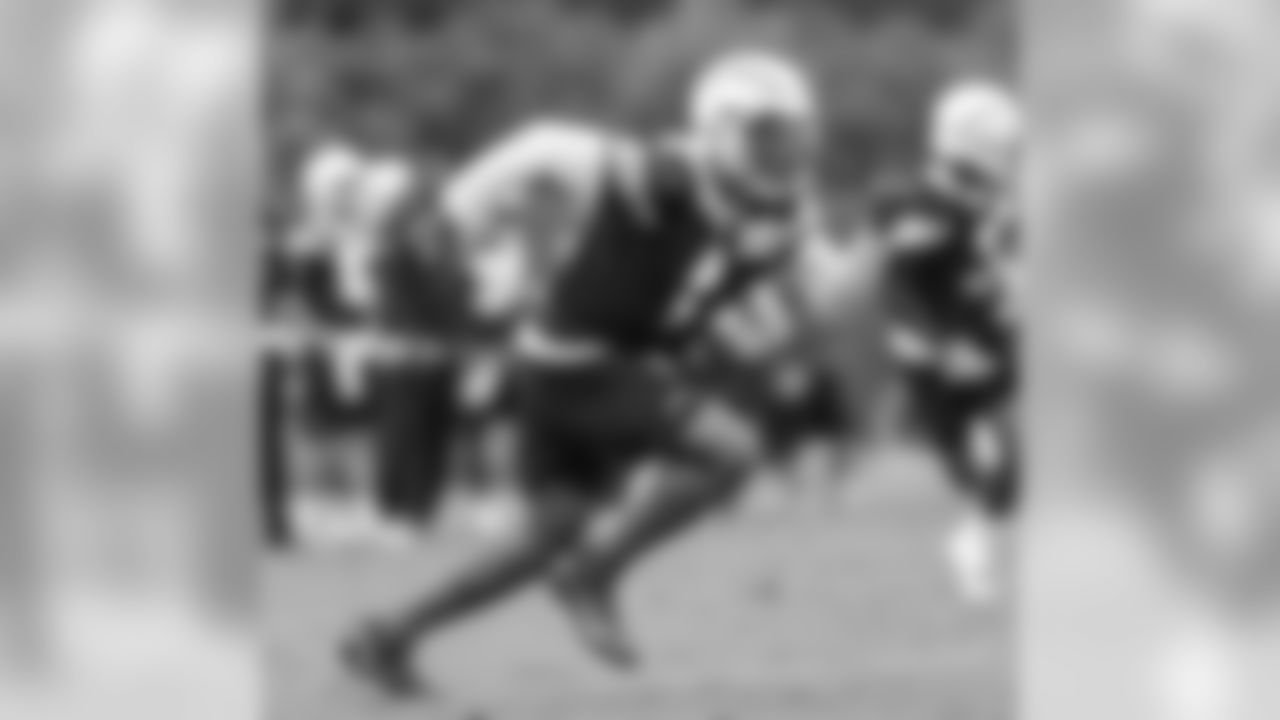
1 WR Justice Liggins
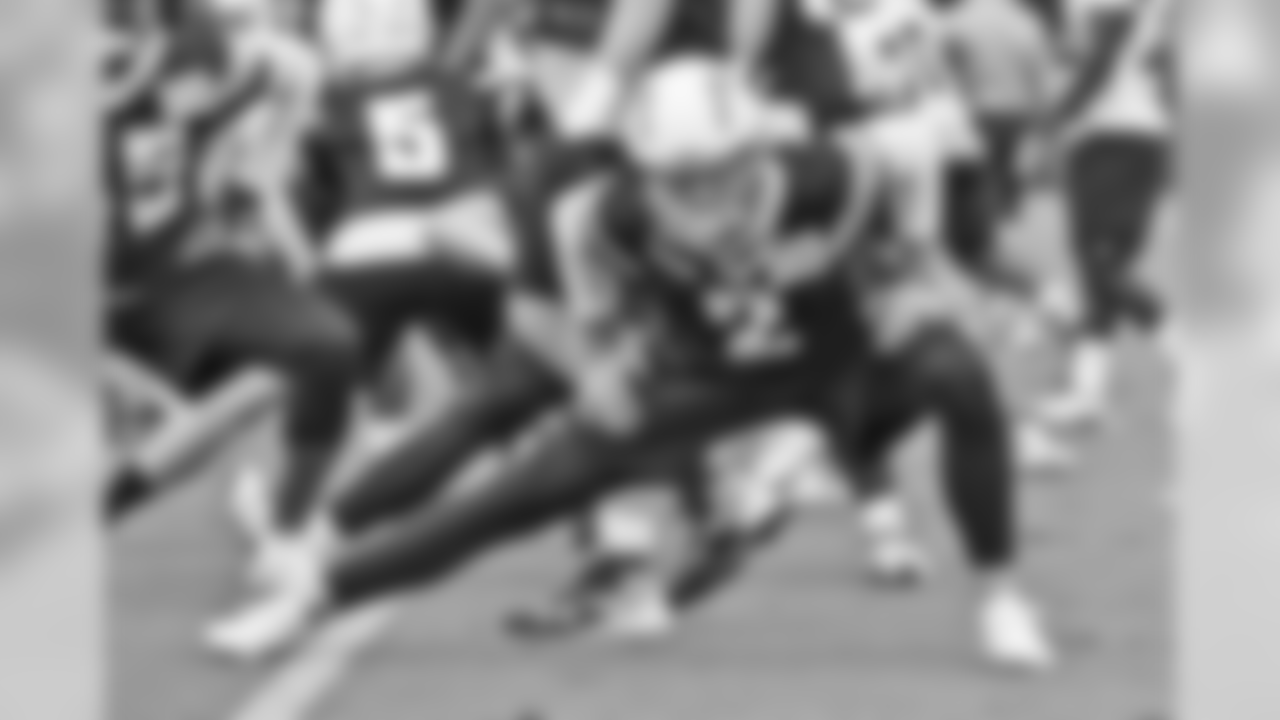
2 P Shane Tripucka

3 QB Geno Smith

4 K Roberto Aguayo

5 WR Nelson Spruce

6 K Caleb Sturgis

7 QB Cardale Jones
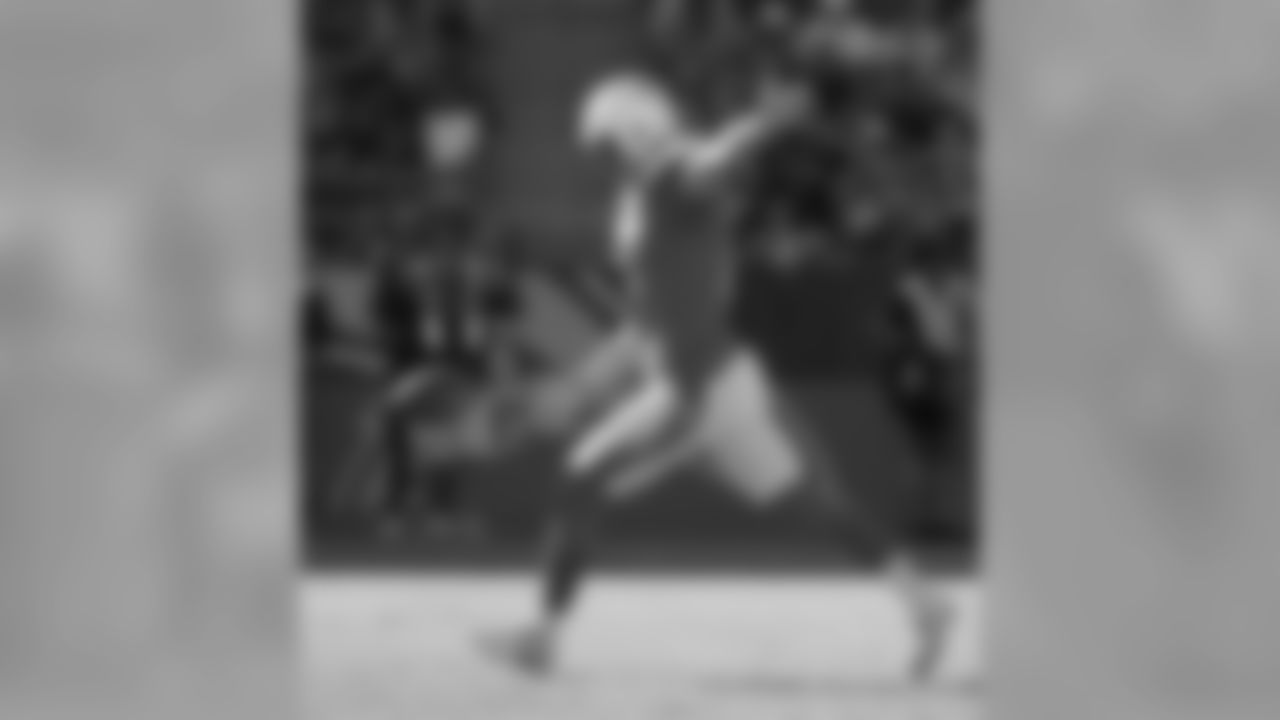
8 P Drew Kaser

9 QB Nic Shimonek

10 WR Artavis Scott

11 WR Geremy Davis

12 WR Travis Benjamin

13 WR Keenan Allen
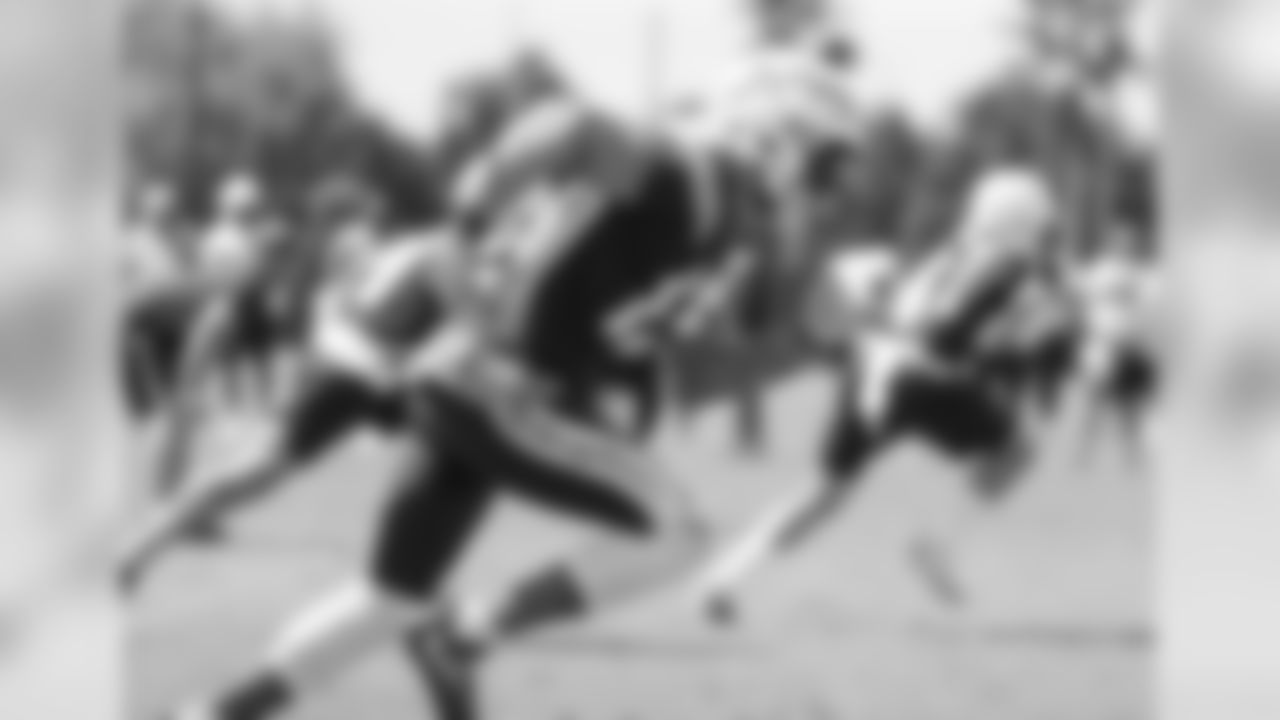
15 WR Andre Patton

16 WR Tyrell Williams

17 QB Philip Rivers

20 CB Desmond King
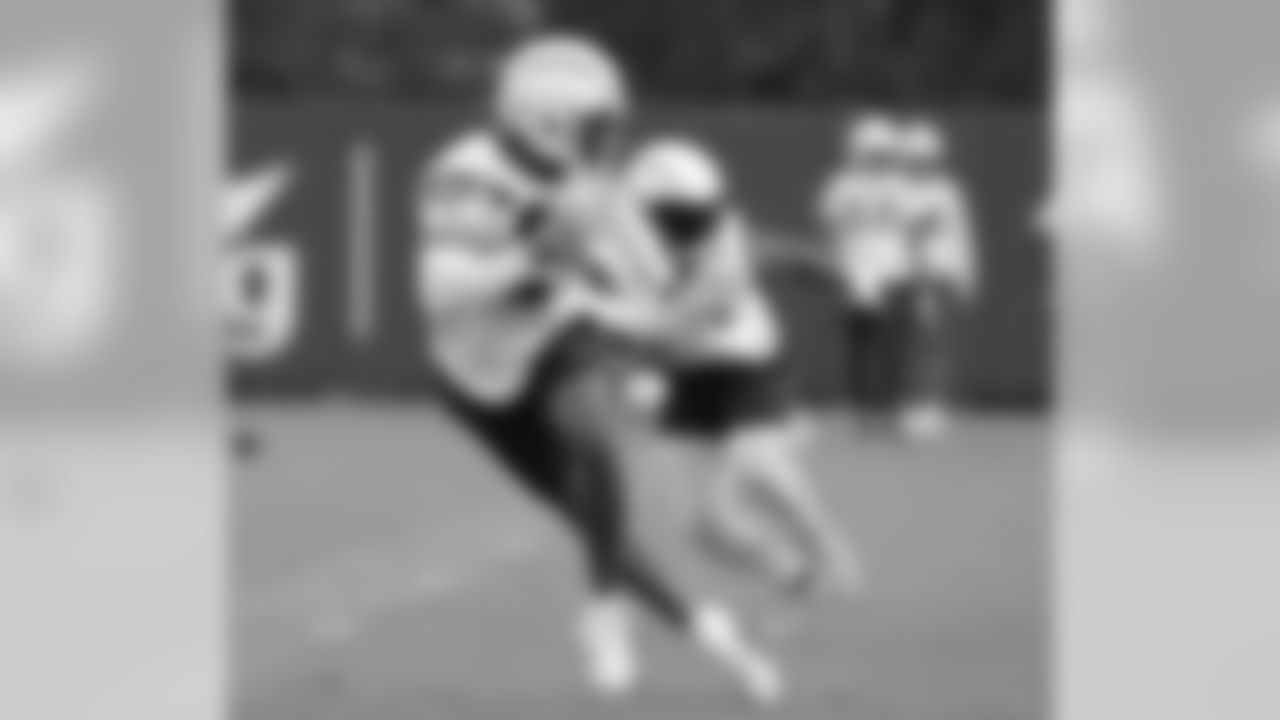

24 CB Trevor Williams

25 S Rayshawn Jenkins

26 CB Casey Hayward

28 RB Melvin Gordon III
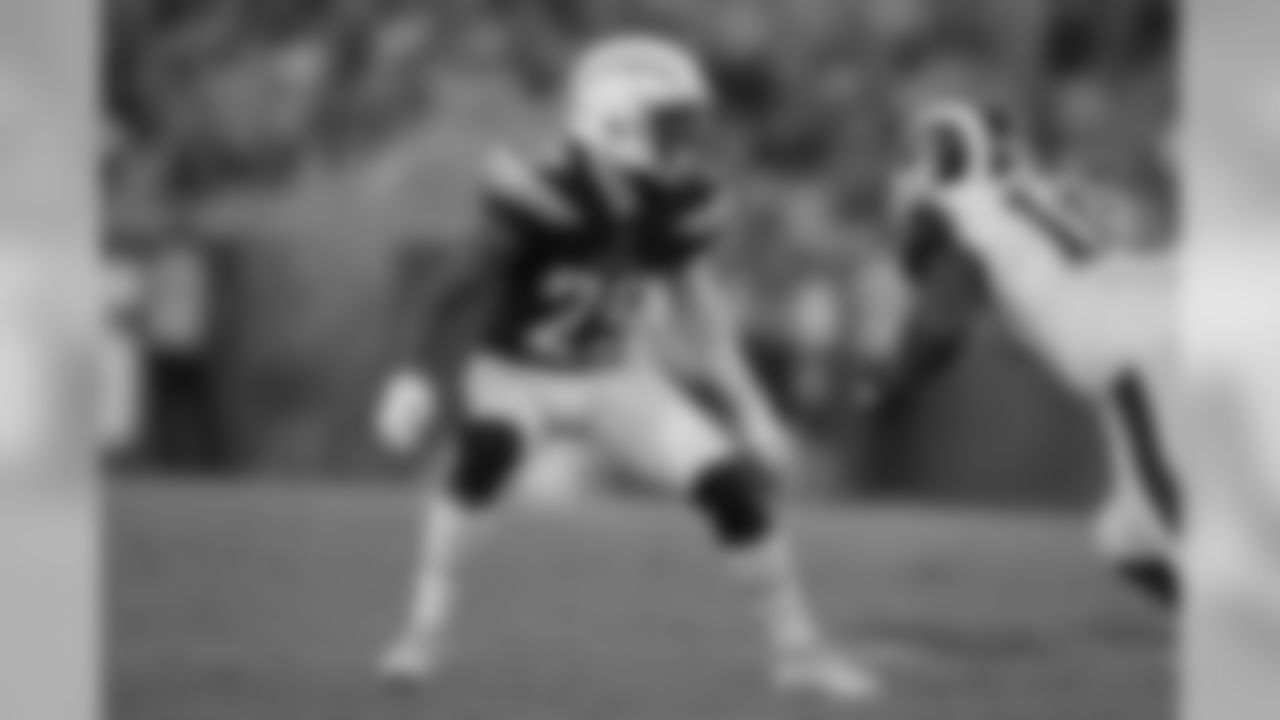
29 CB Craig Mager

30 RB Austin Ekeler

31 S Adrian Phillips

32 RB Justin Jackson
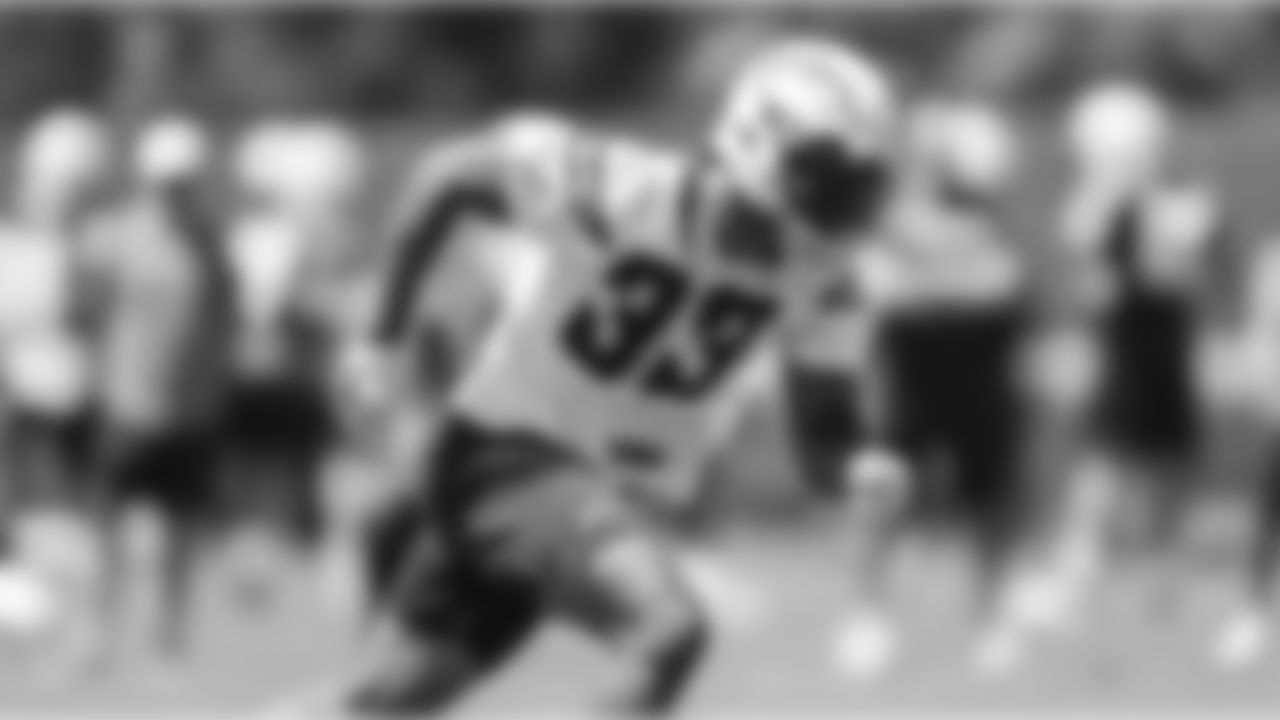
33 S Derwin James

34 FB Derek Watt

35 DB Micah Hannemann

35 RB Russell Hansbrough
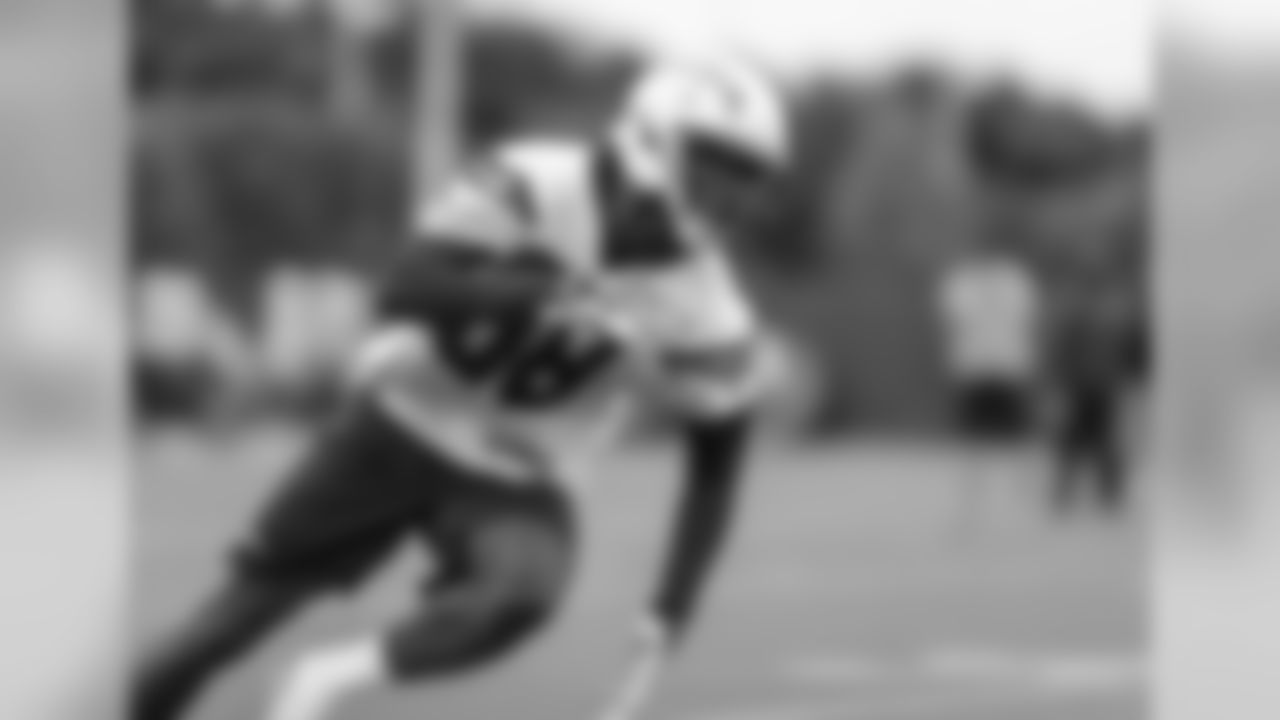
36 CB Brandon Facyson

37 S Jahleel Addae

38 CB B.J. Clay
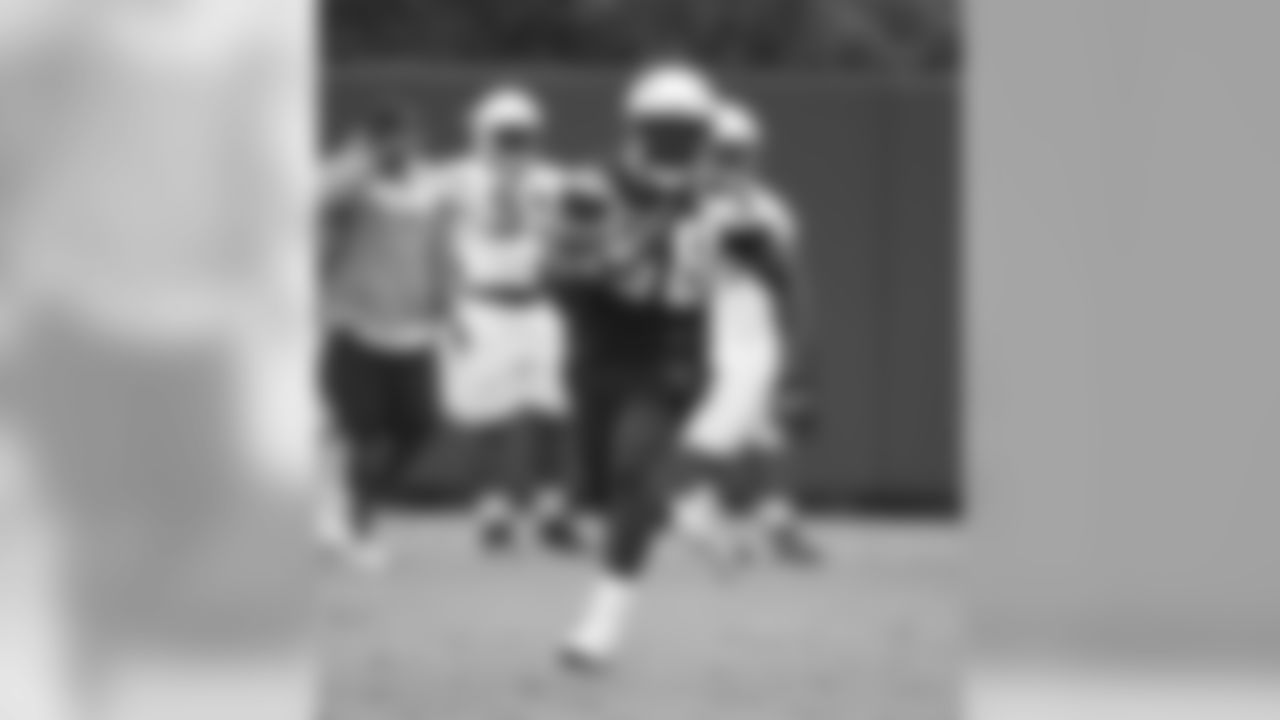
38 RB Detrez Newsome

39 DB Tony Brown

40 FB Anthony Manzo-Lewis

41 CB Marcus Edmond

41 WR Je'Ron Hamm
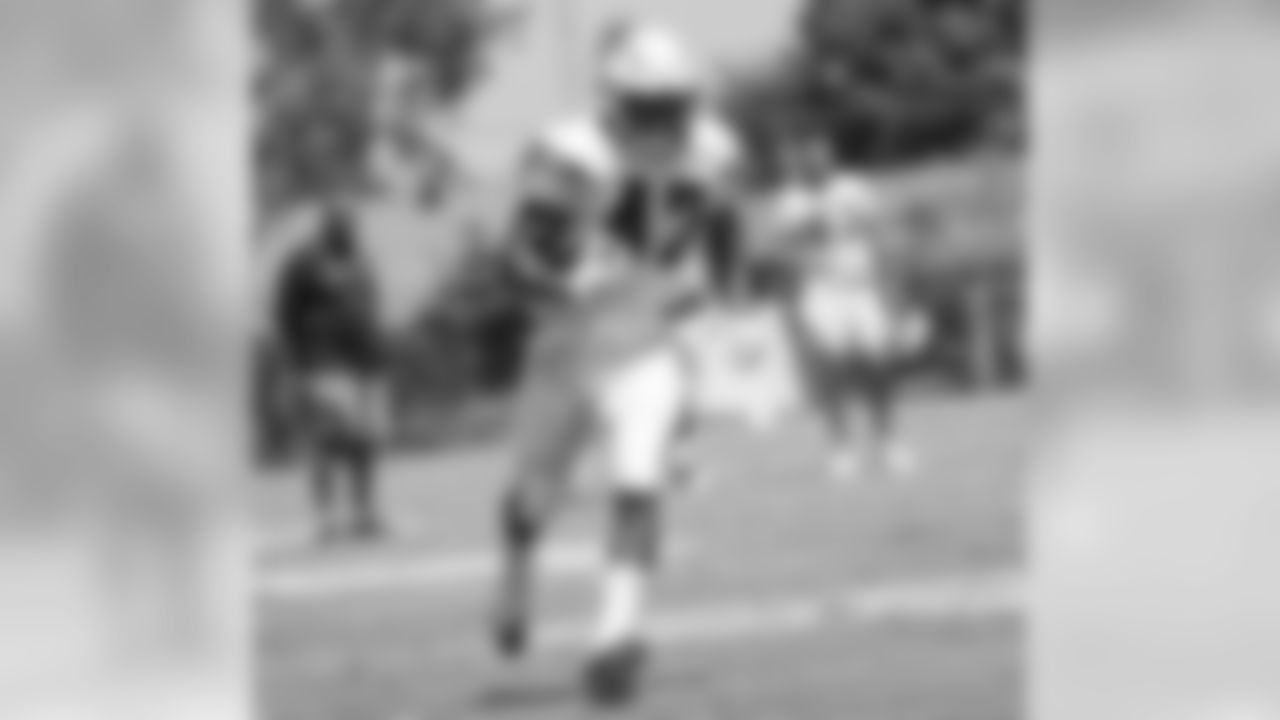
42 RB Terrell Watson
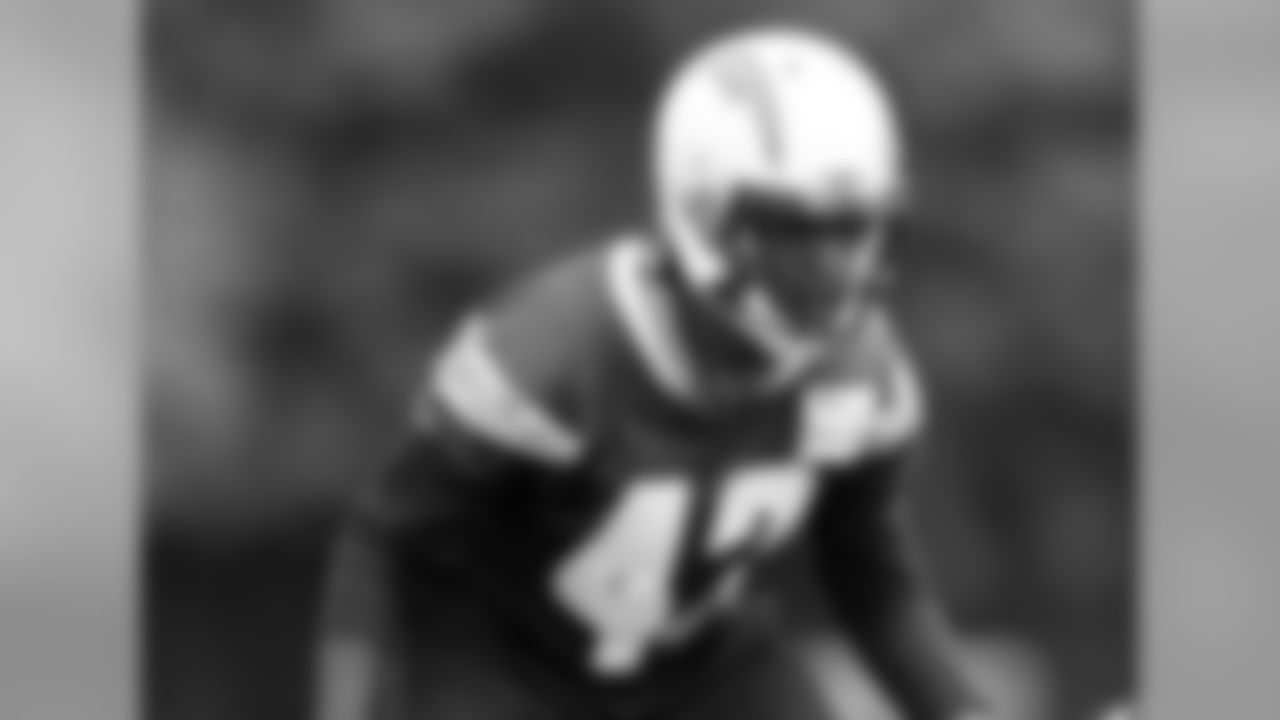
42 CB Channing Stribling

43 CB Michael Davis

44 LB Kyzir White
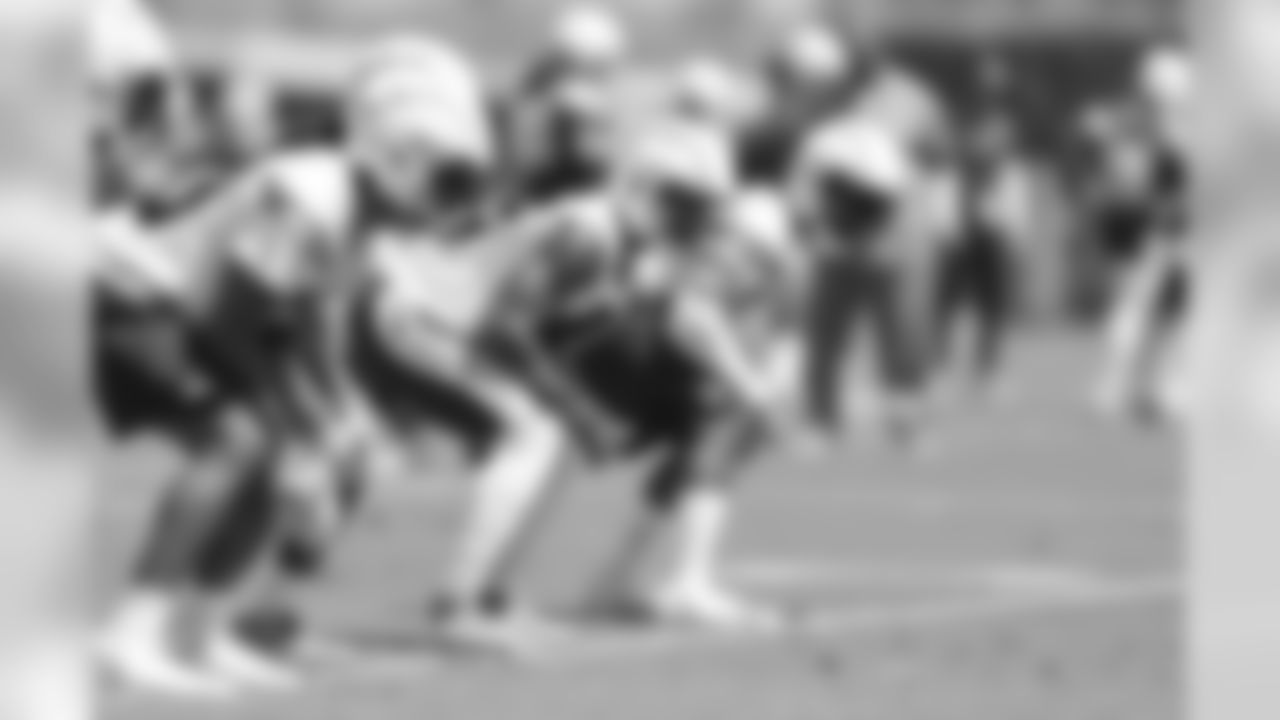
45 S A.J. Hendy
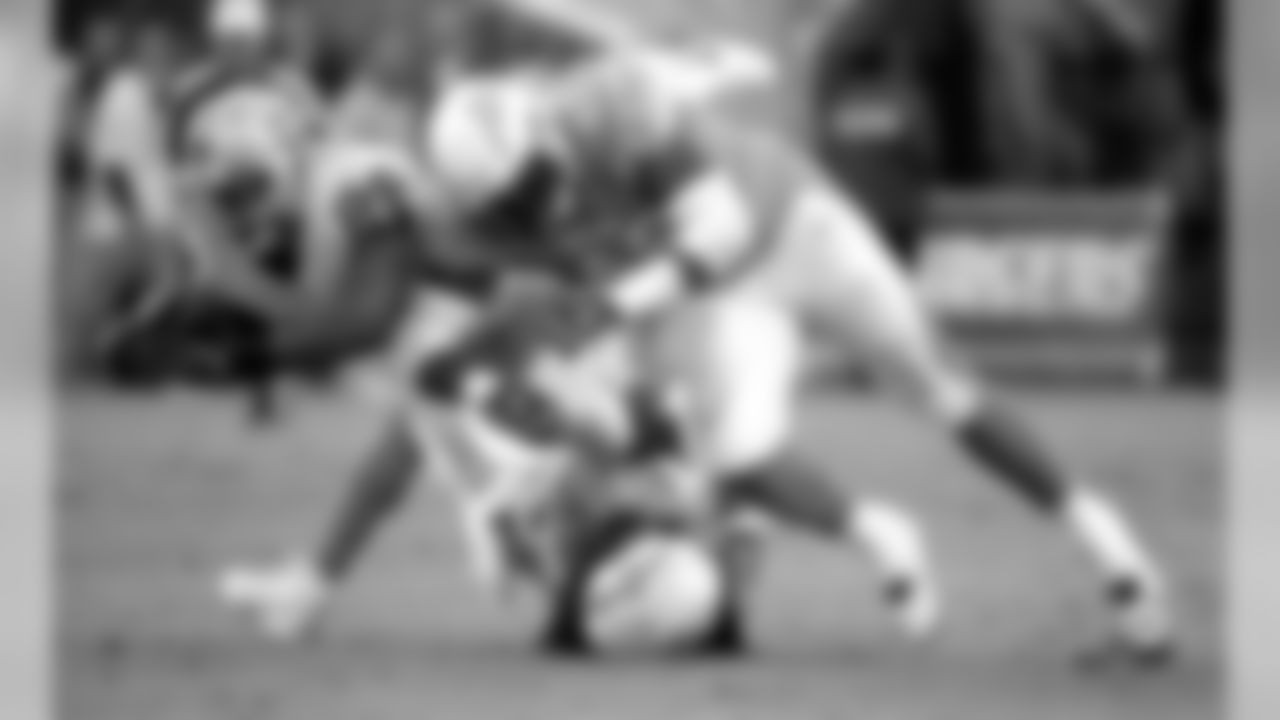
46 DE Chris Landrum

47 LS Mike Windt
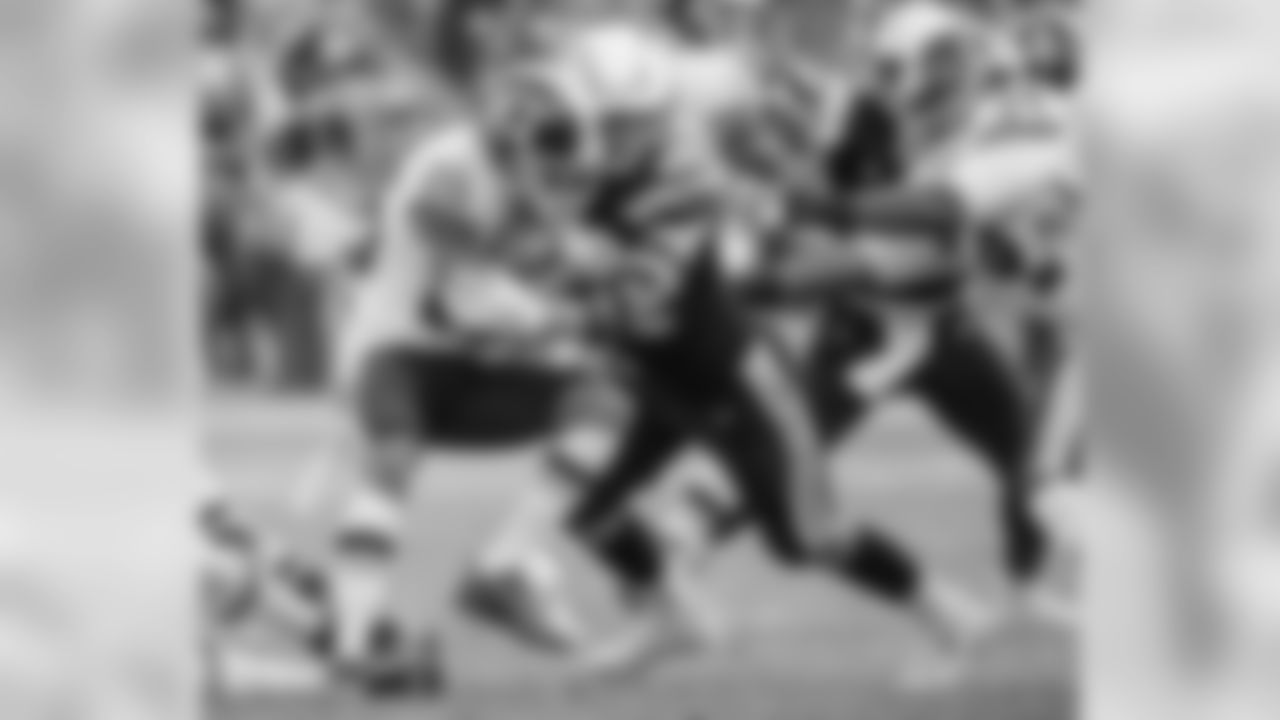
48 LB Nick Dzubnar

50 ILB Hayes Pullard
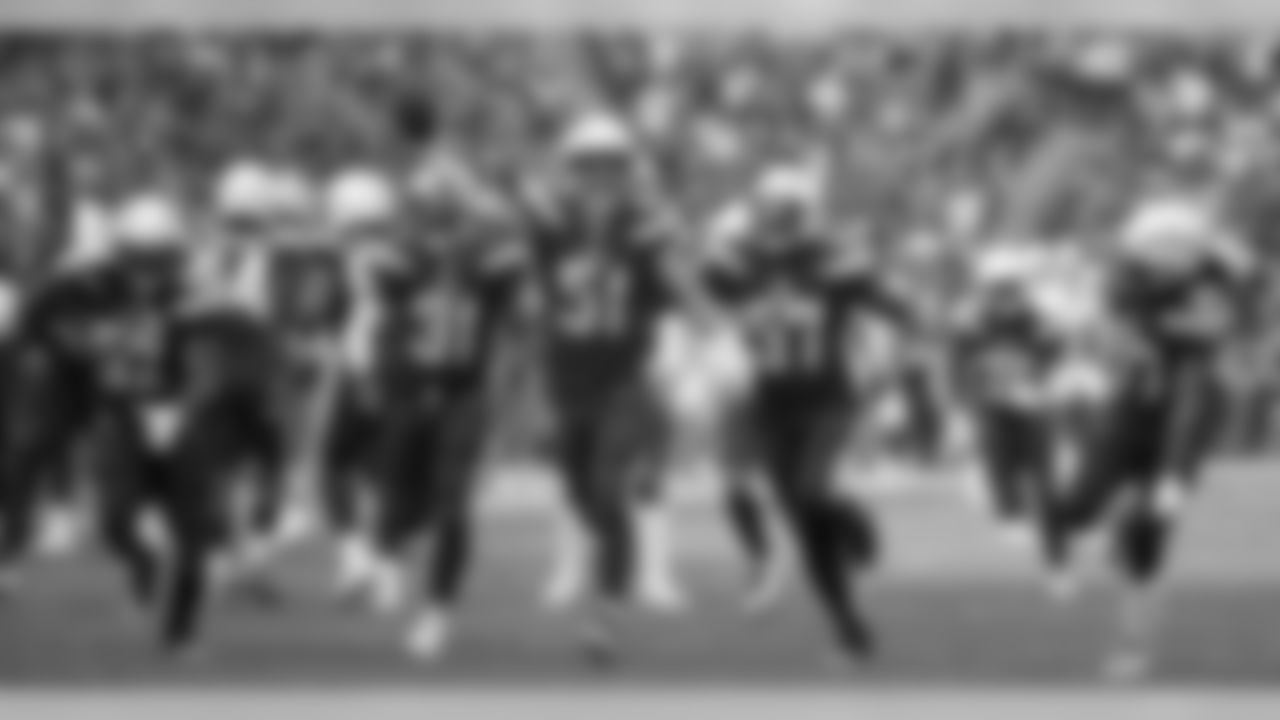
51 OLB Kyle Emanuel

52 LB Denzel Perryman

53 C Mike Pouncey
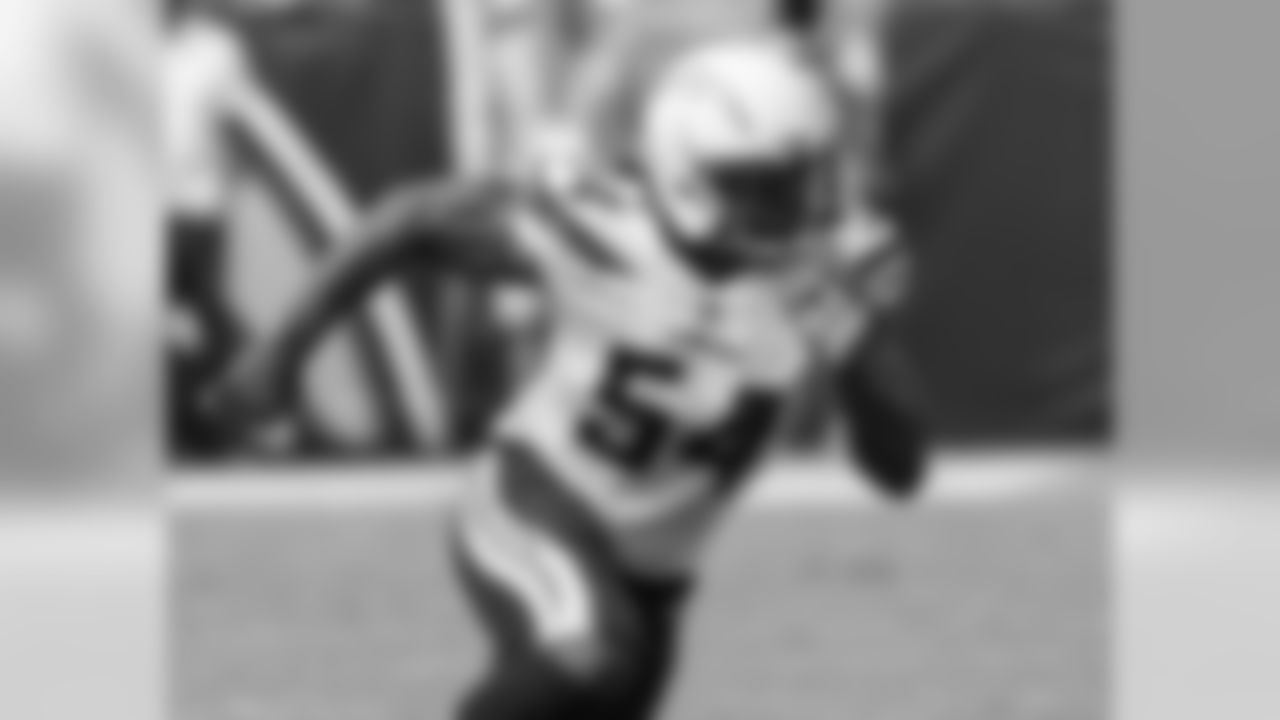
54 DE Melvin Ingram III

57 OLB Jatavis Brown

58 LB Uchenna Nwosu
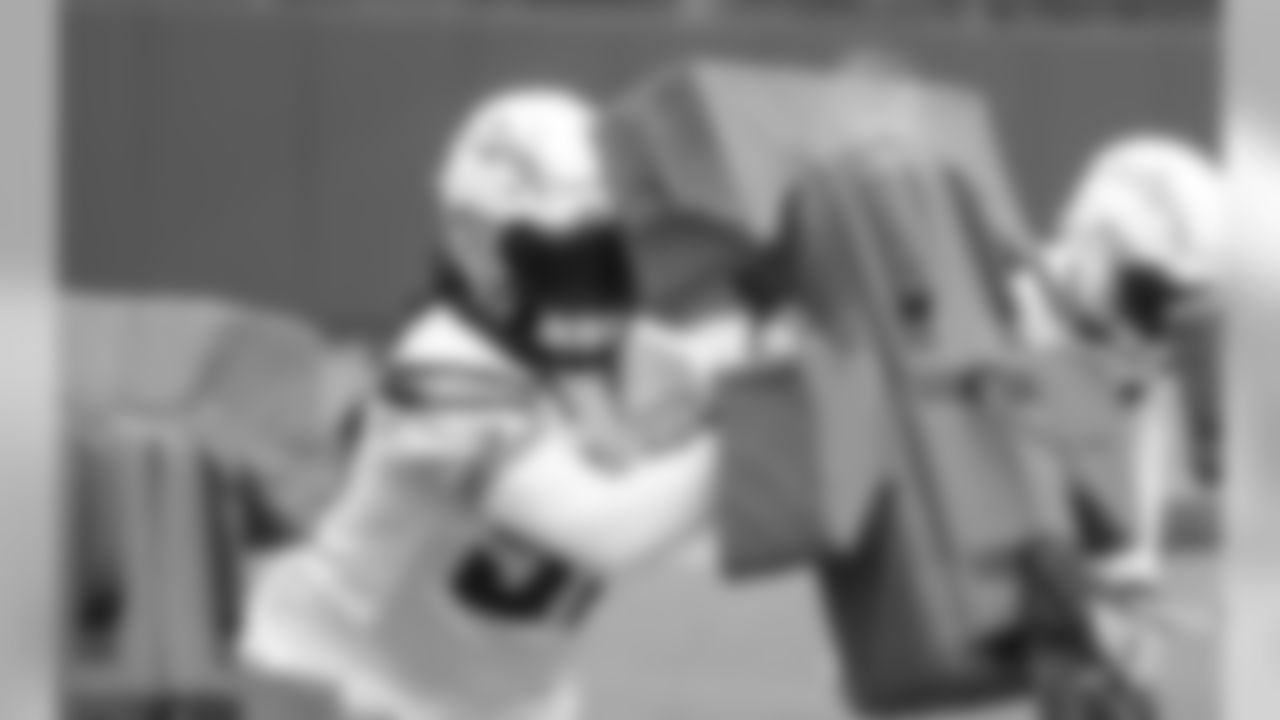
59 LB D'Juan Hines
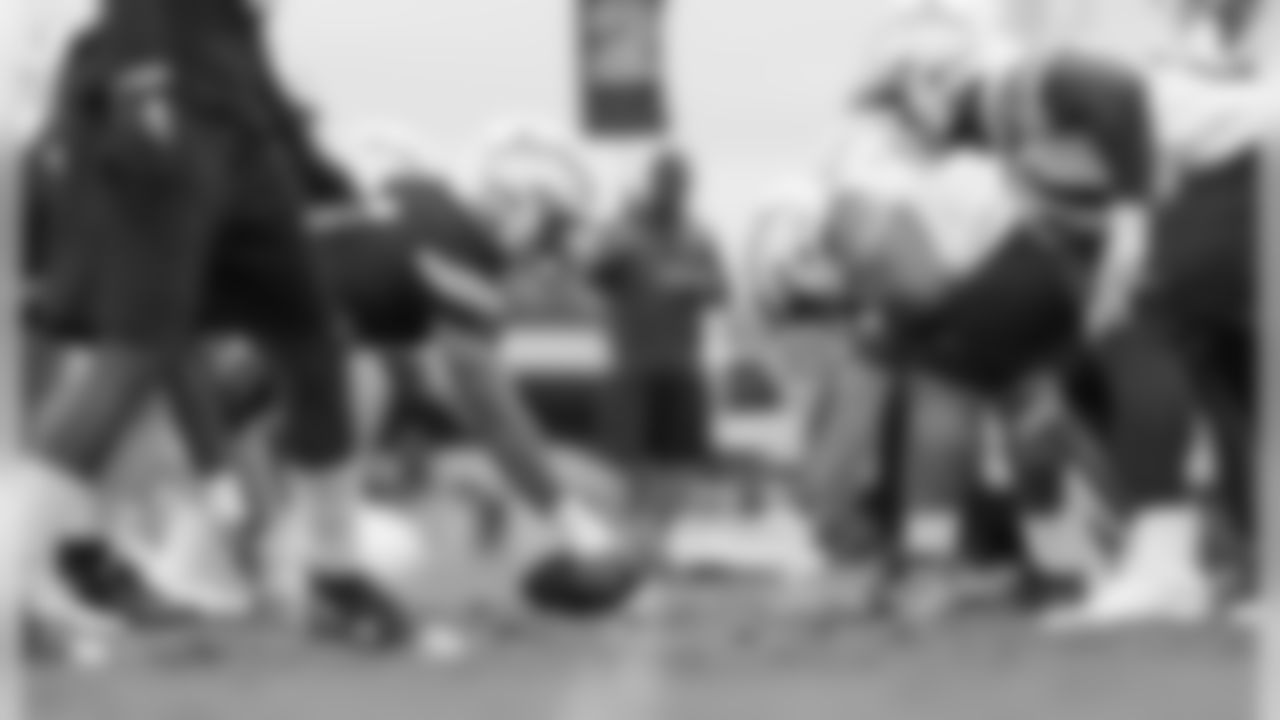
61 C-G Scott Quessenberry
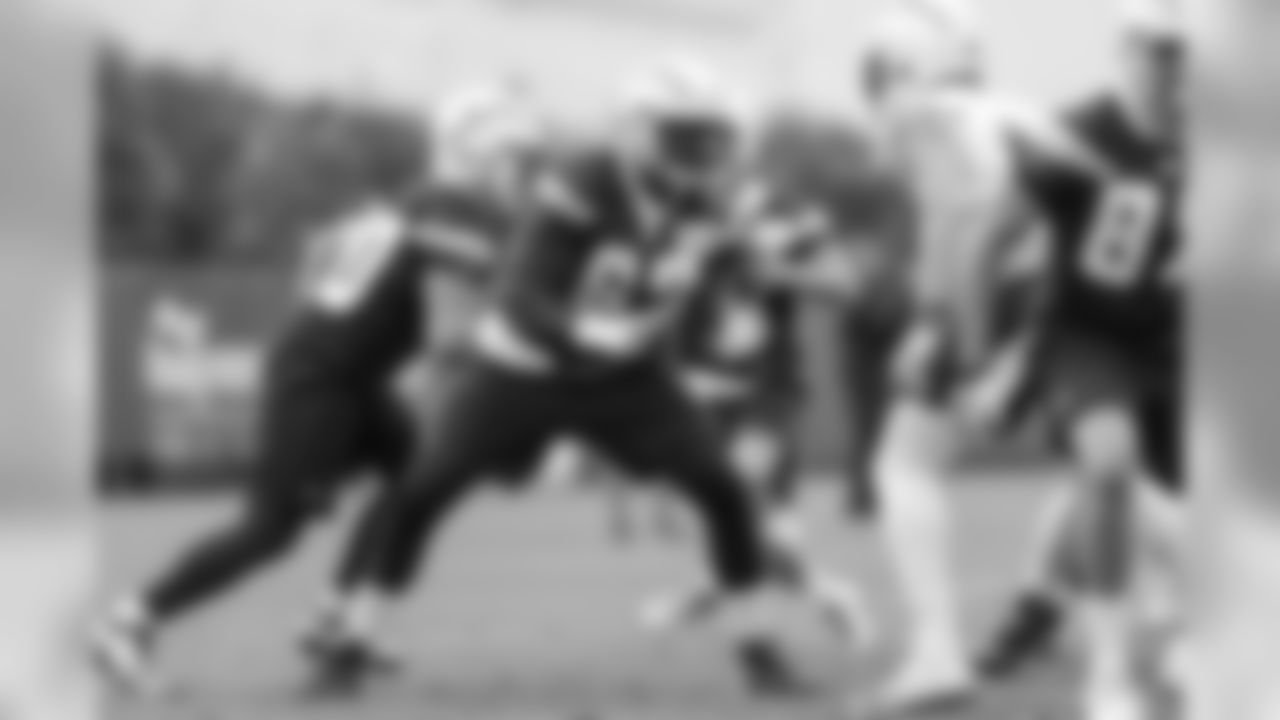
62 OL Chris Durant
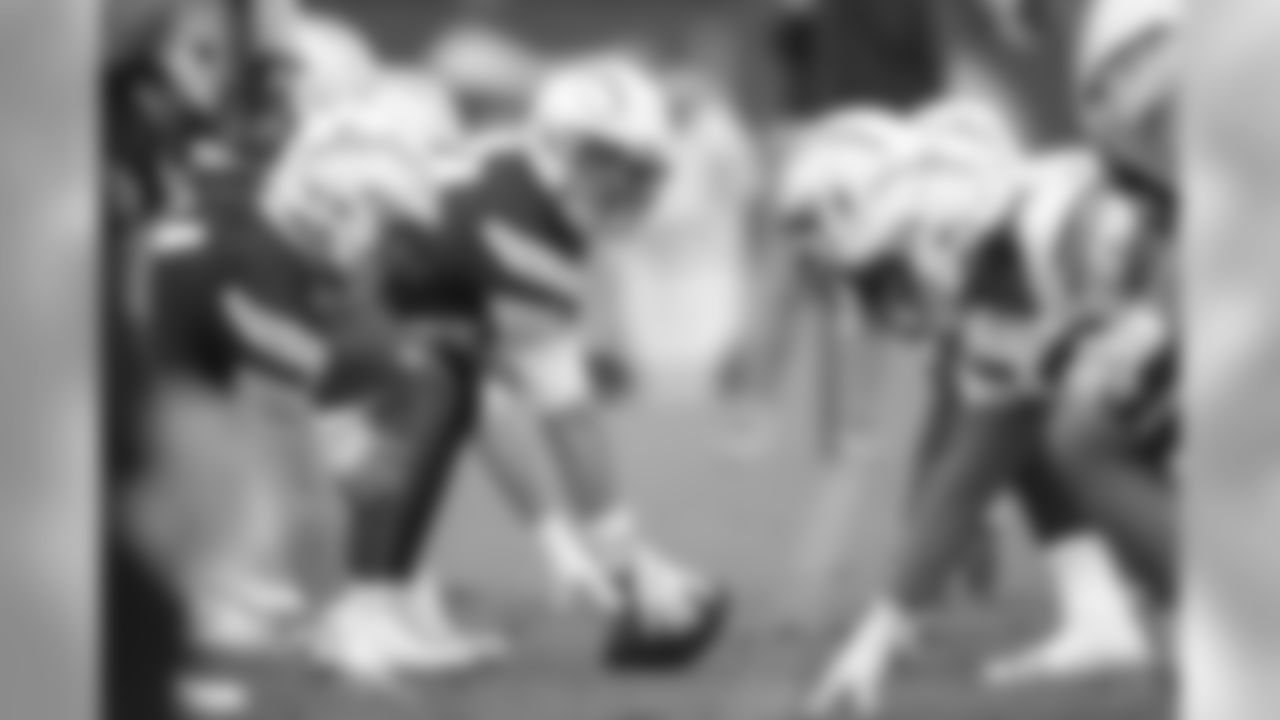
64 C-G Cole Toner
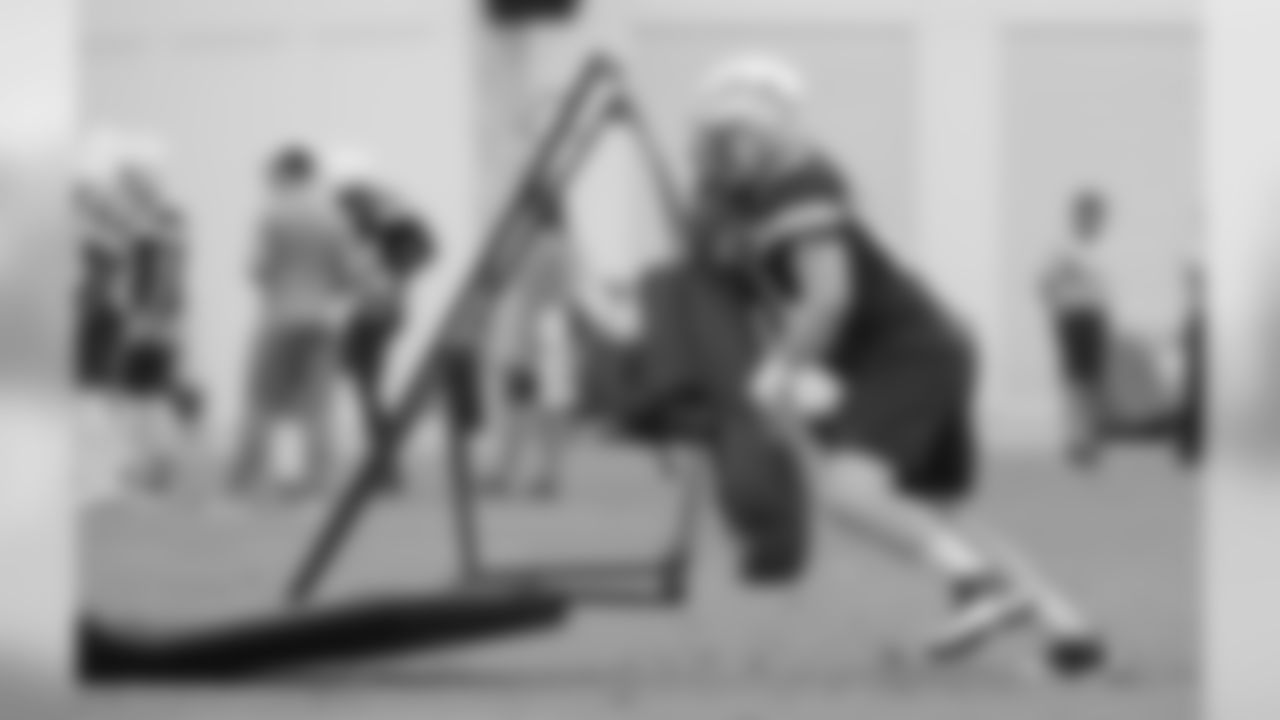
65 OL Zack Golditch
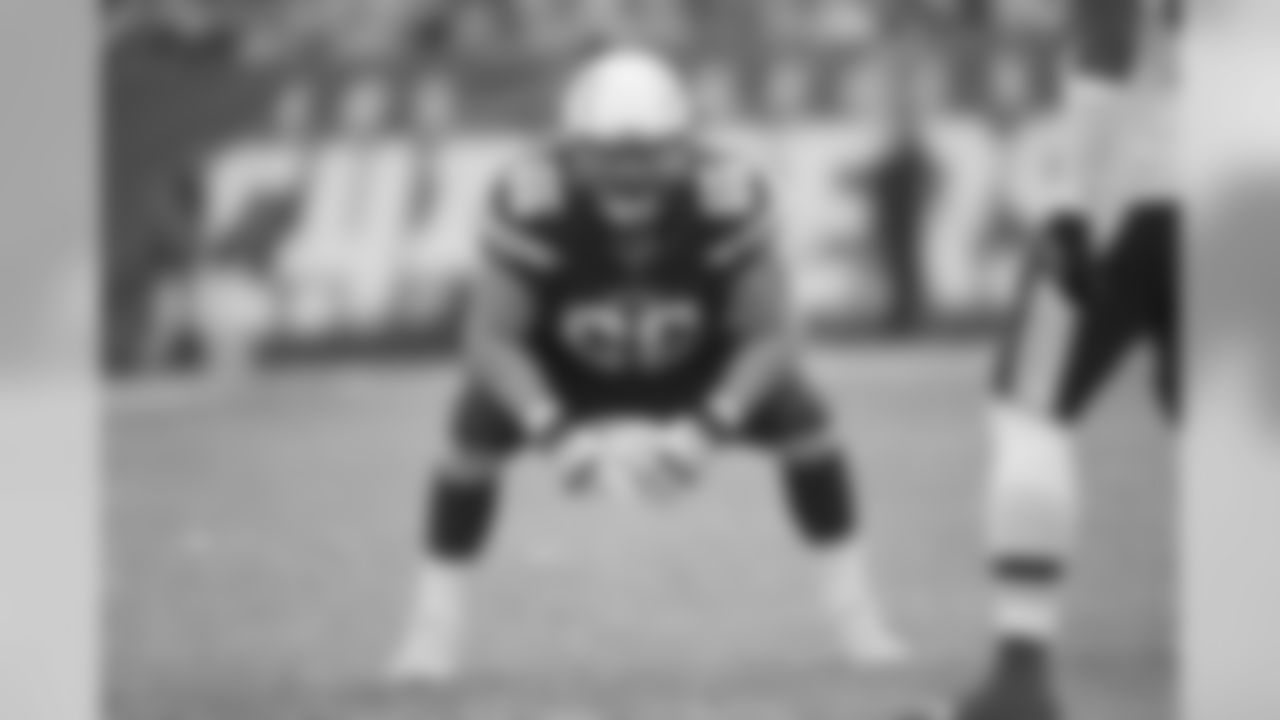
66 G Dan Feeney
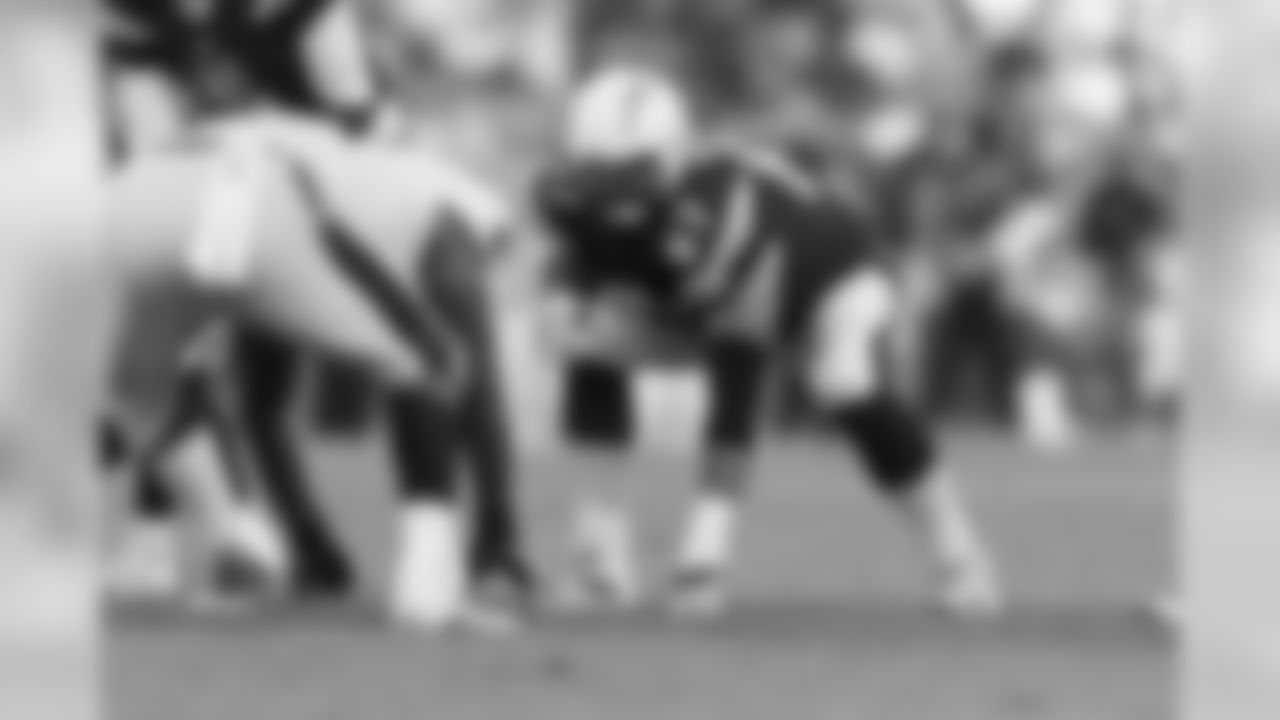
67 G Brett Boyko
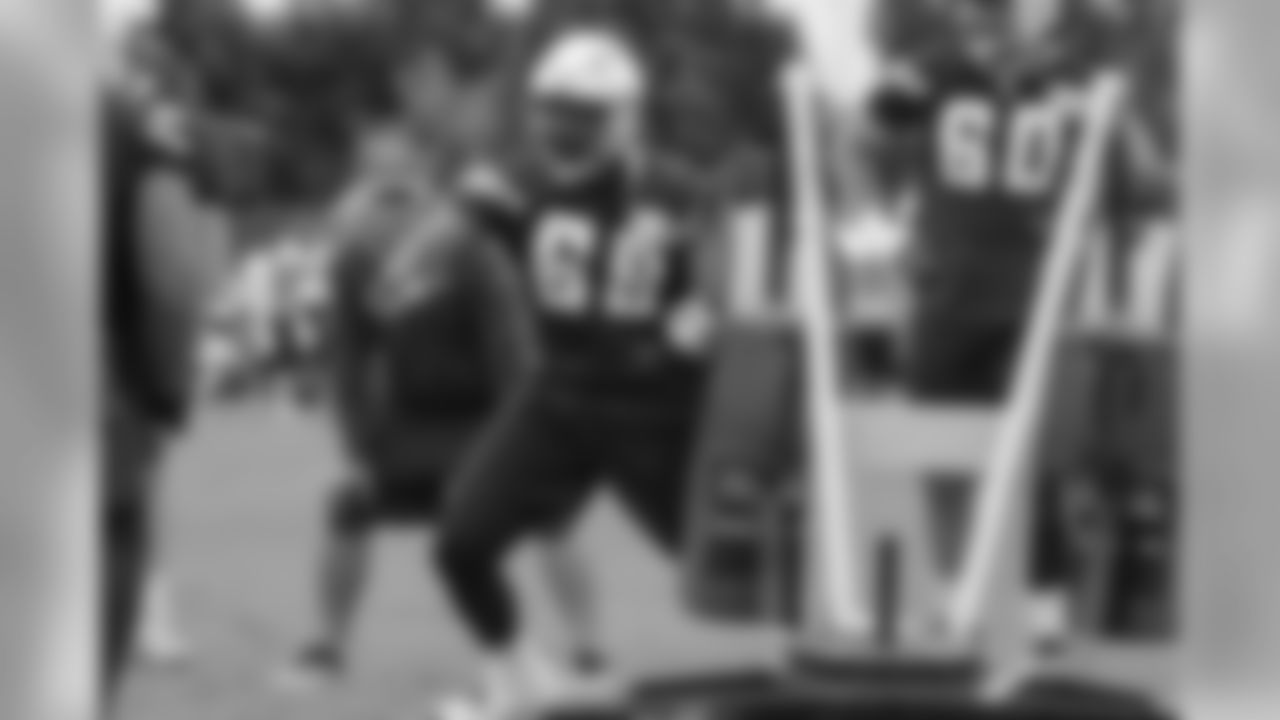
68 T Trent Scott

69 T Sam Tevi
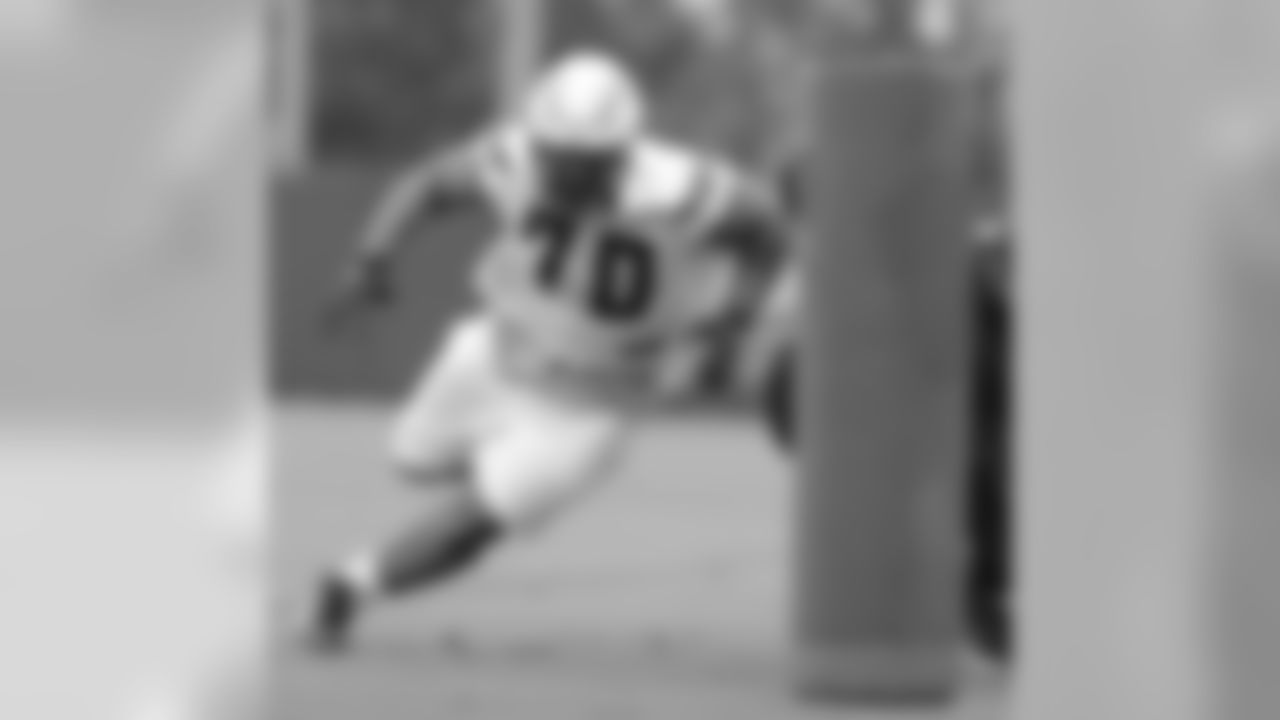
70 DL Steven Richardson

71 NT Damion Square

72 T Joe Barksdale

73 C-G Spencer Pulley
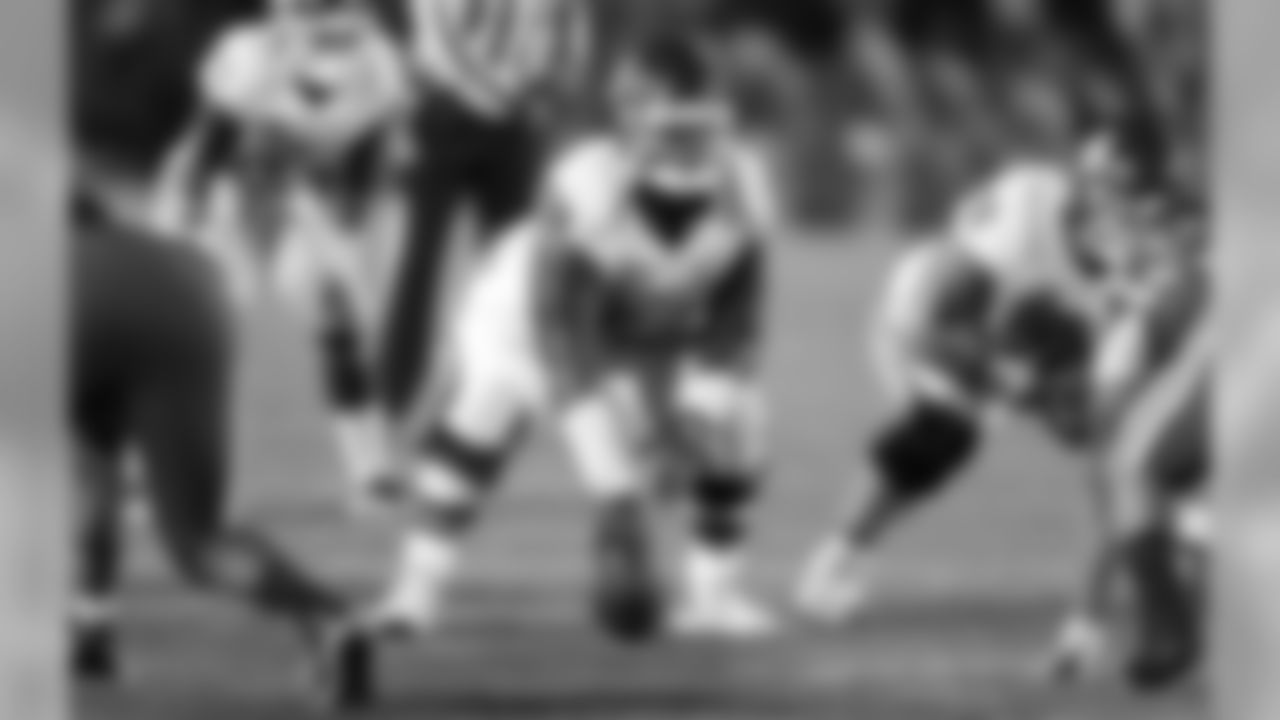
74 G Erick Wren
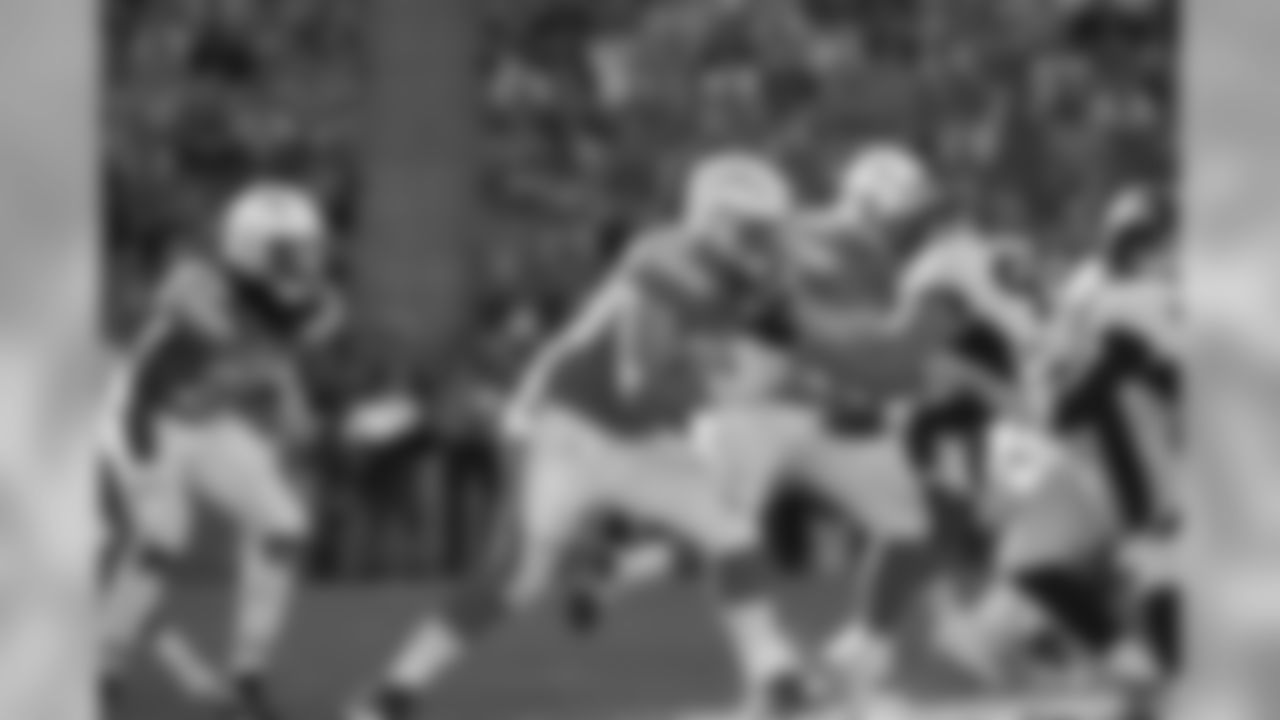
75 G Michael Schofield III
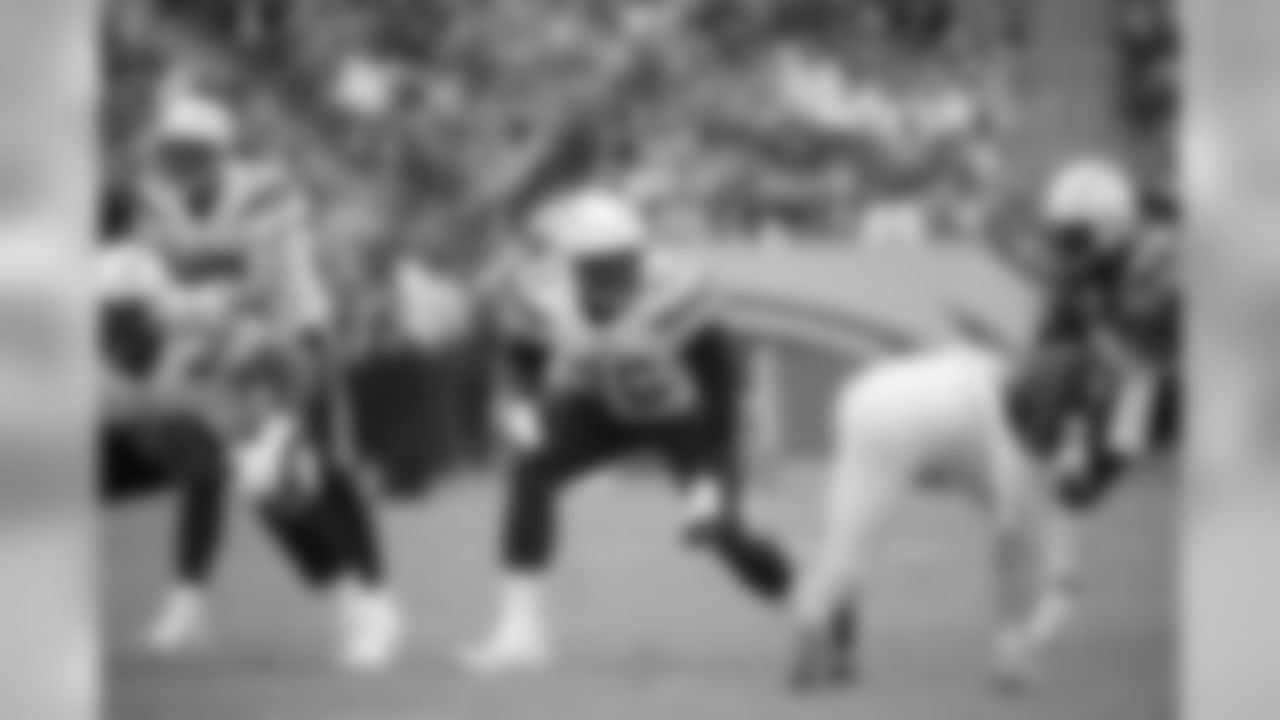
76 T Russell Okung
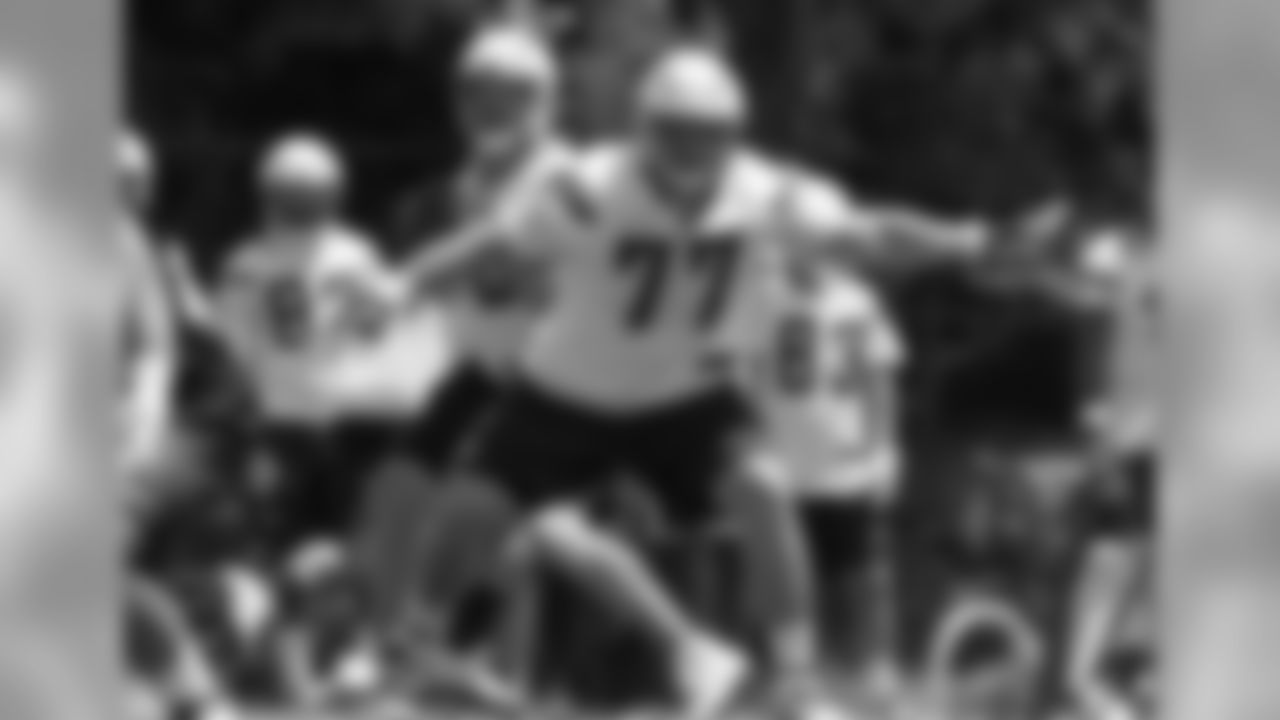
77 G Forrest Lamp

78 DT Marcus Hardison
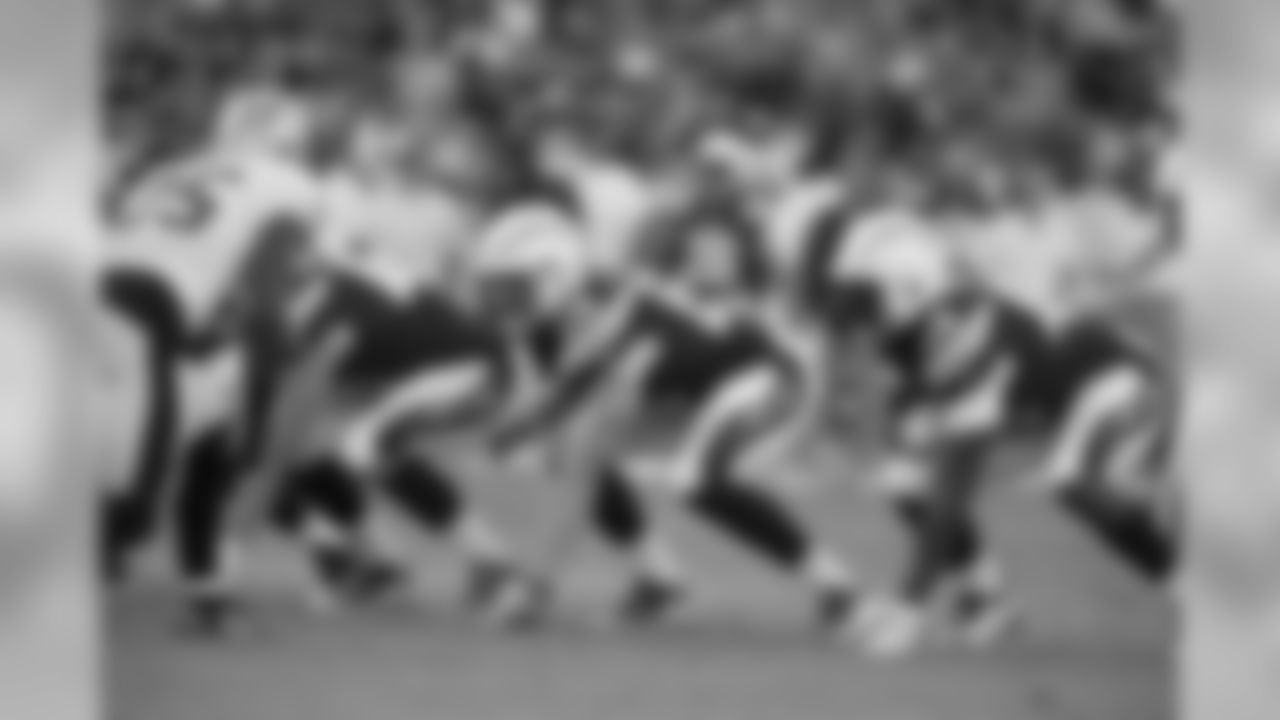
80 TE Sean Culkin

81 WR Mike Williams

82 TE Cole Hunt
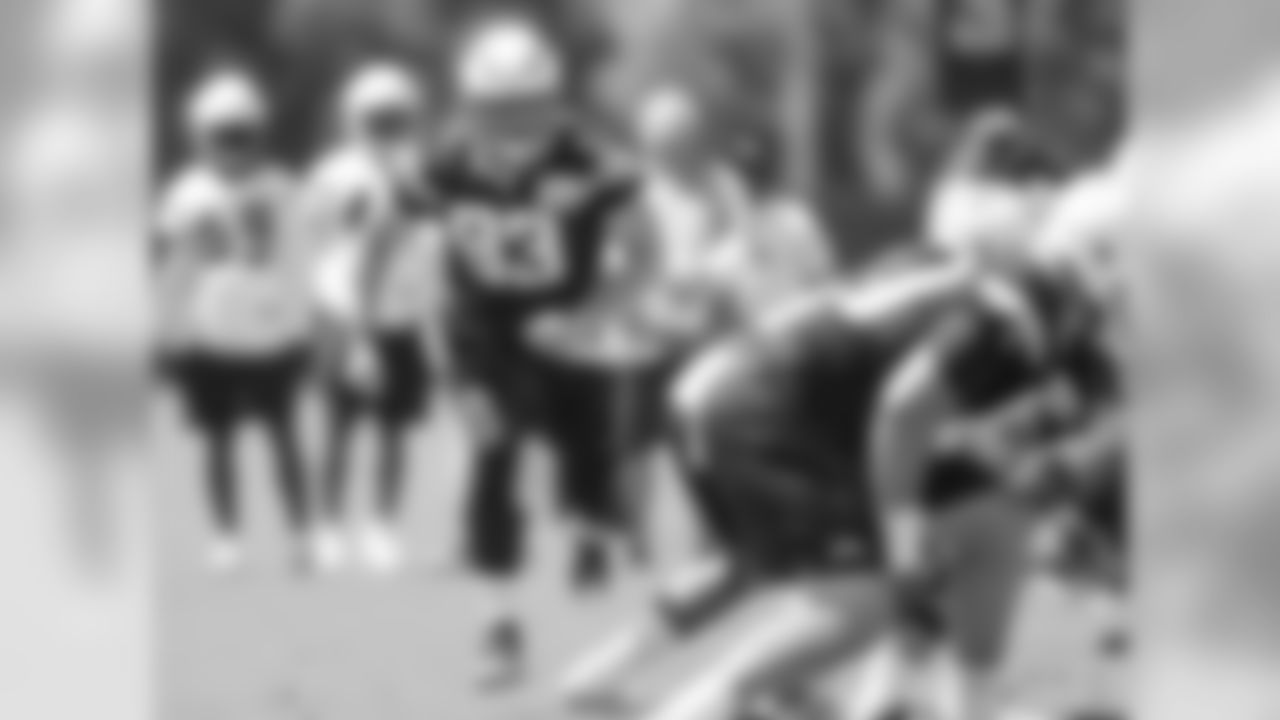
83 TE Braedon Bowman
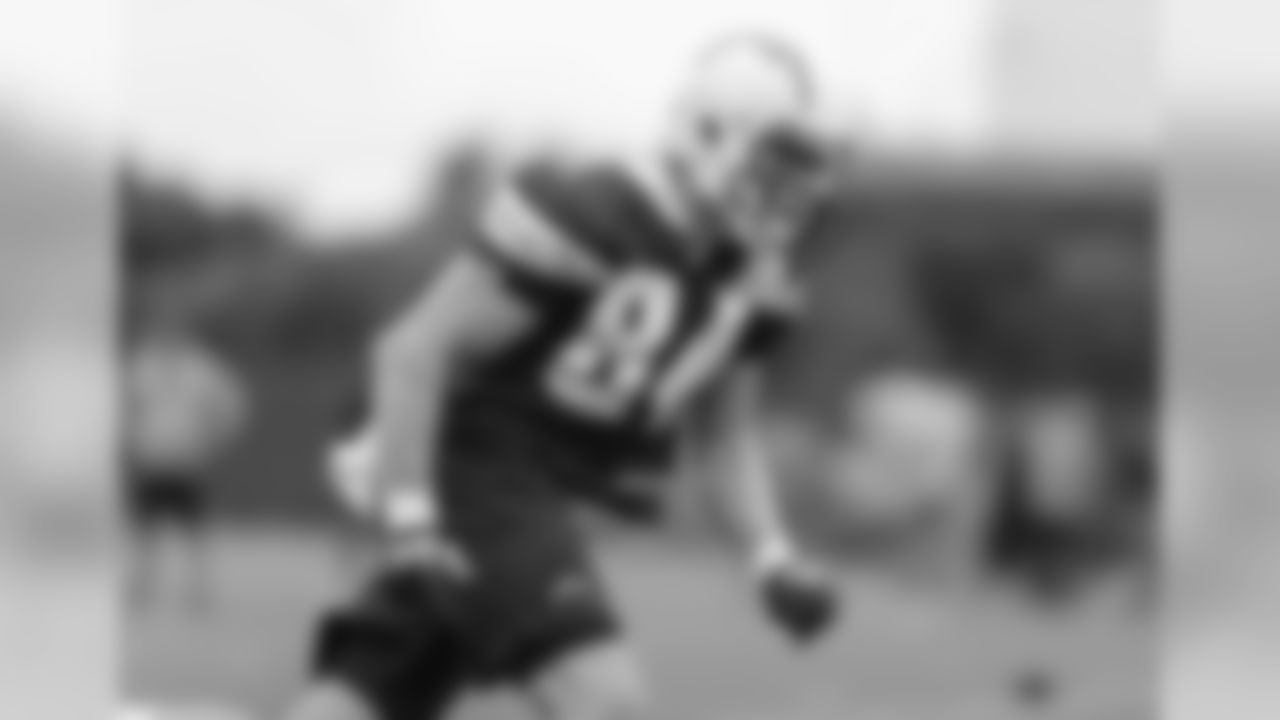
84 WR Dylan Cantrell
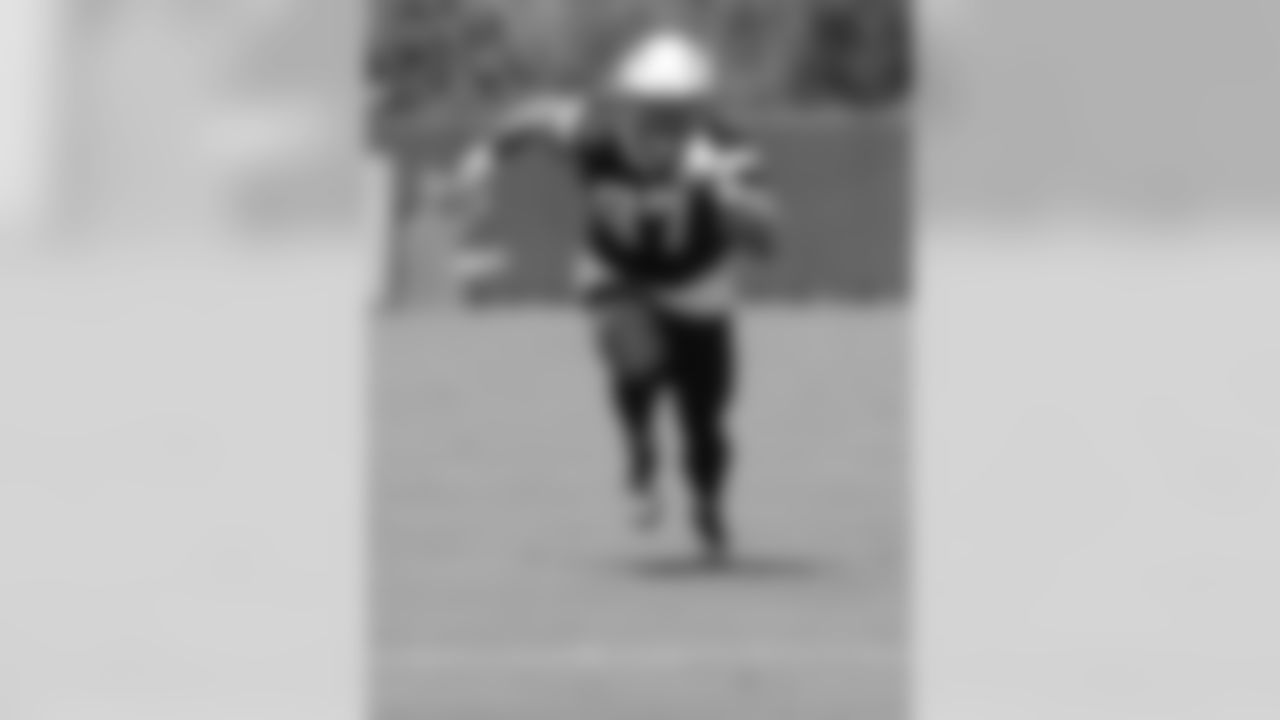
87 TE Ben Johnson

88 TE Virgil Green

89 WR J.J. Jones

90 DE Whitney Richardson
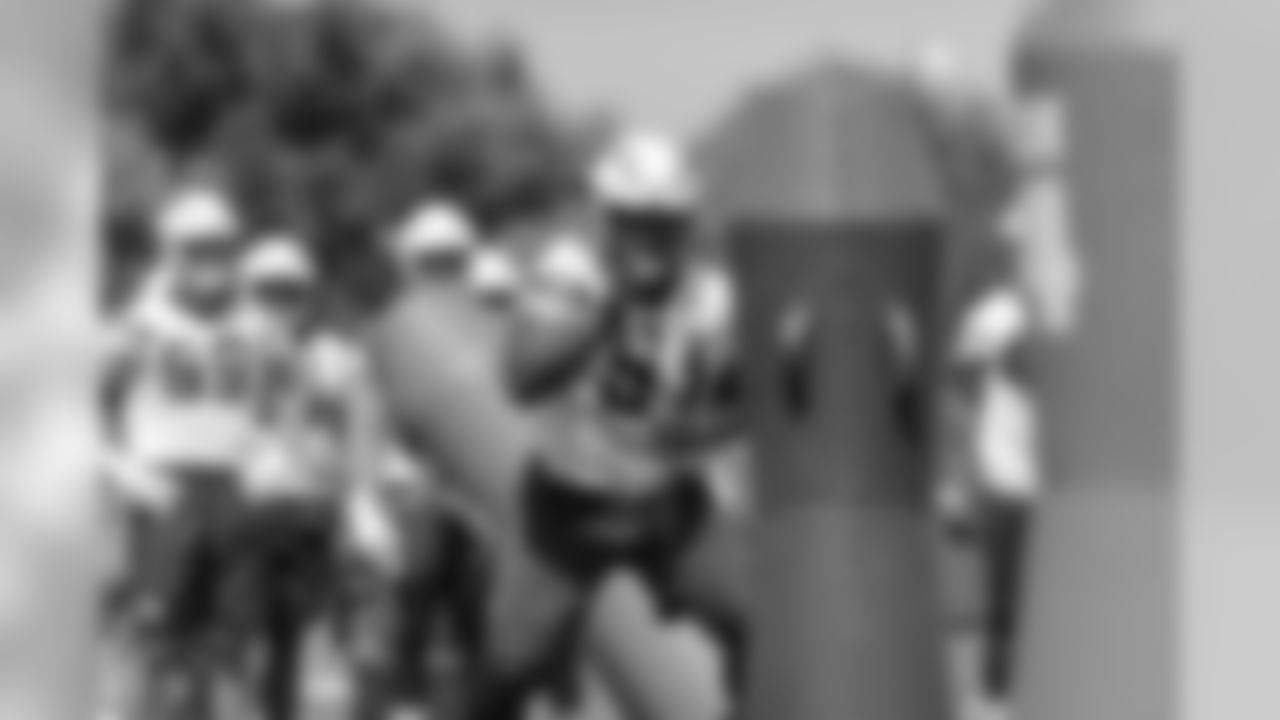
91 DL Justin Jones

92 NT Brandon Mebane

93 DE Darius Philon

94 DT Corey Liuget
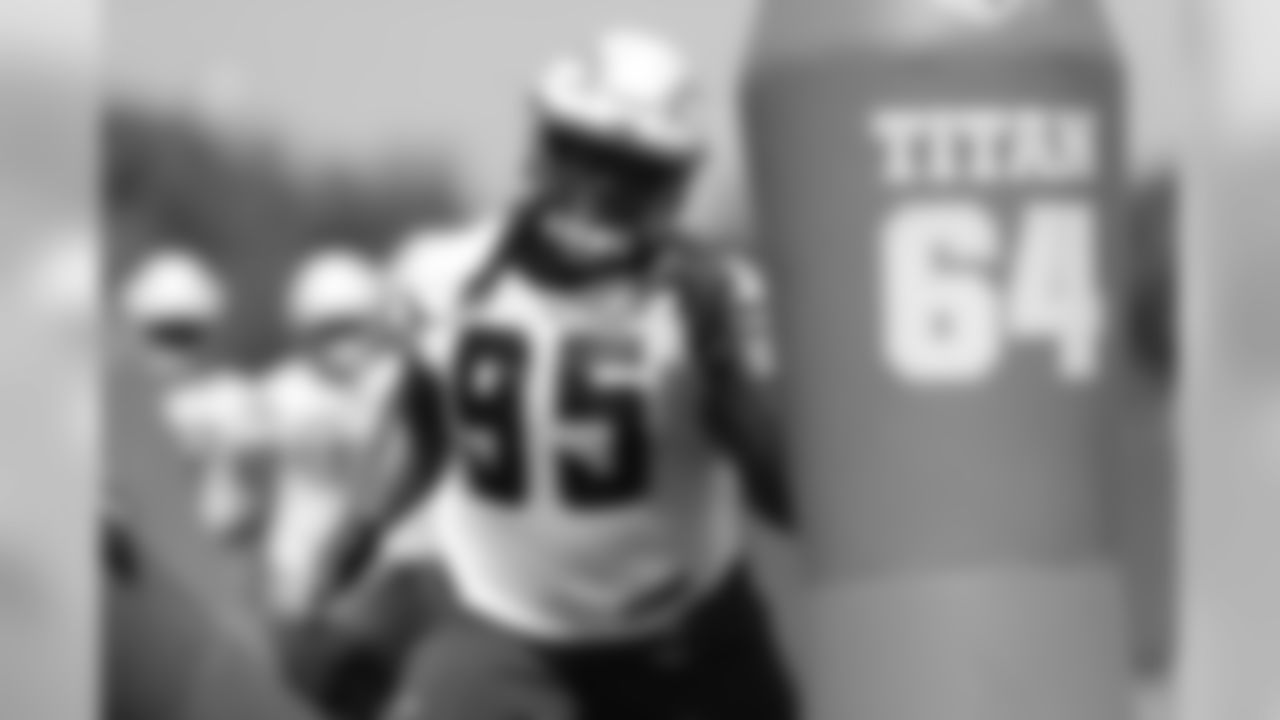
95 DL Bijhon Jackson

96 LB Kyle Coleman
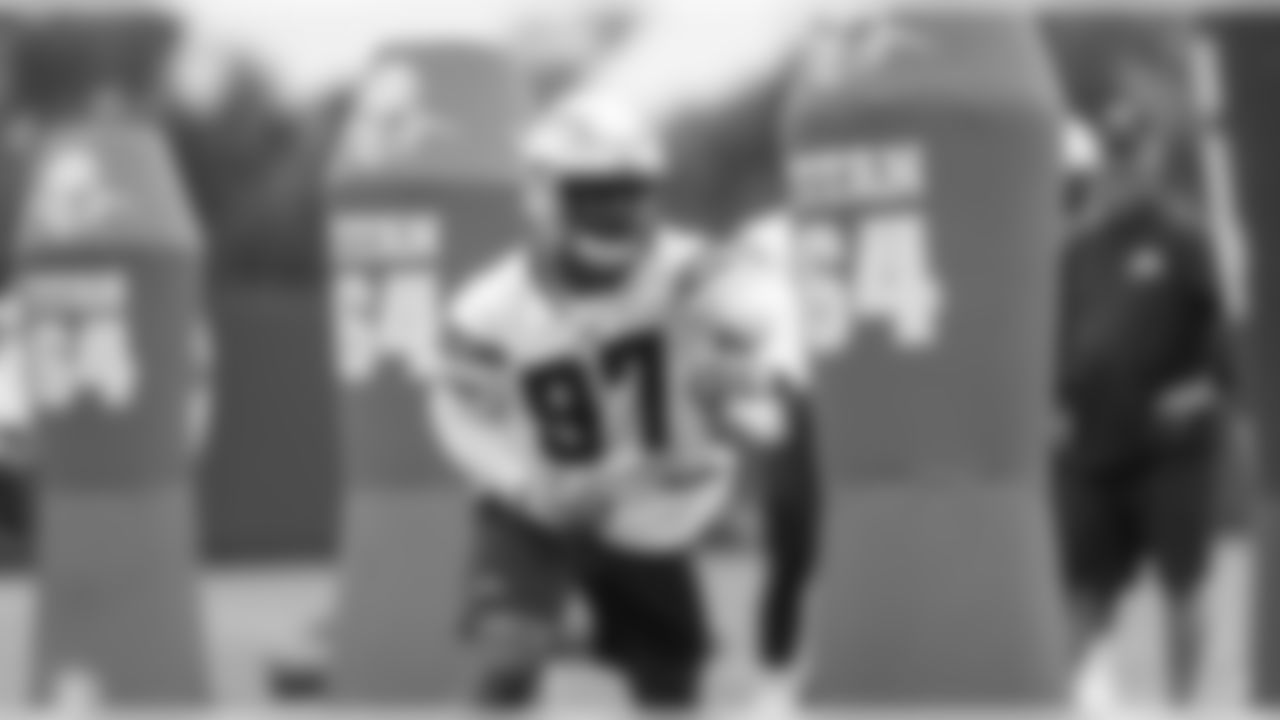
97 DE Patrick Afriyie

98 DE Isaac Rochell

99 DE Joey Bosa
The Chargers' 2018 training camp schedule is official, so mark your calendars to watch the Bolts prepare for the upcoming season! The team will hold 14 practices open to the public between July 28 and August 23. For more information, please visit **www.chargers.com/camp**.


